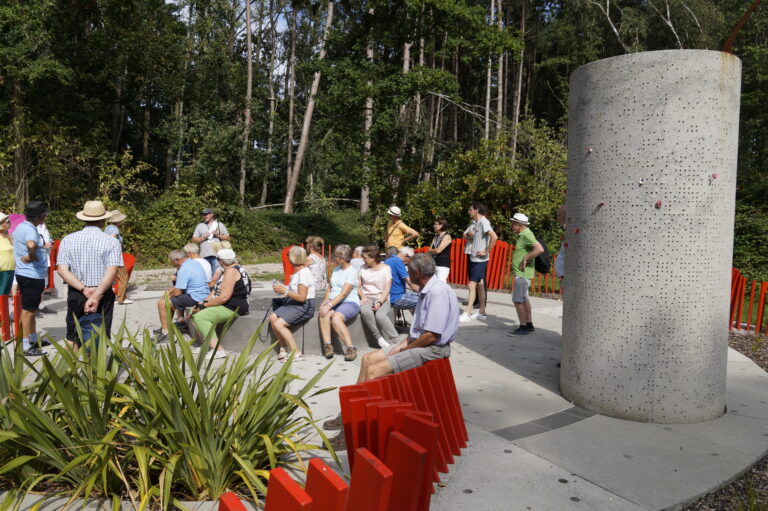
Zonnebeke is a diverse municipality with many traditions and a rich history. As a visitor, you can get to know all that Zonnebeke has to offer under the guidance of an experienced guide. There are guide tours on foot or by bike. In short, an ideal activity for your family,?
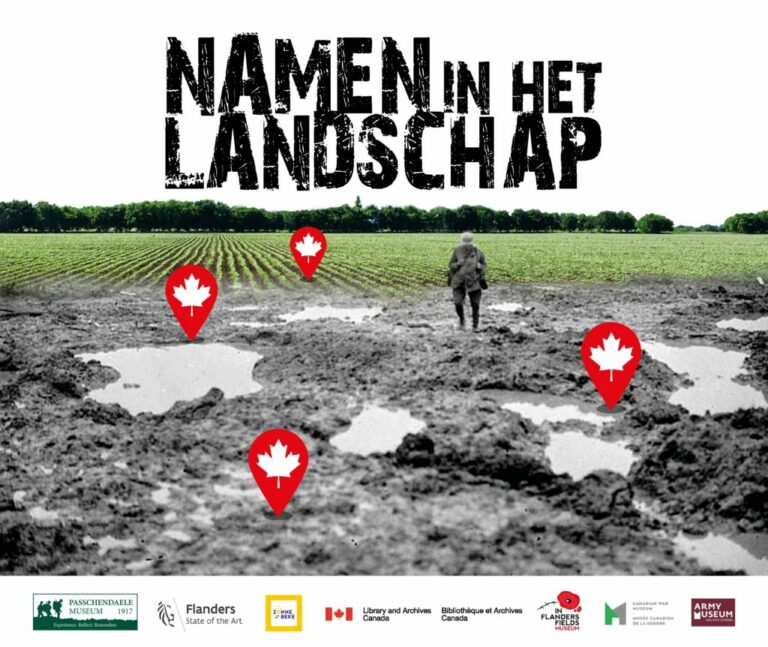
The Passchendaele Museum in Zonnebeke launched the 'Names in the Landscape' geoportal on 25 May 2022, with the support of the Flemish Government and Library and Archives Canada. It is an online portal. Online portal The online portal shows where more than 1,400 Canadians were killed or presumably buried. The?
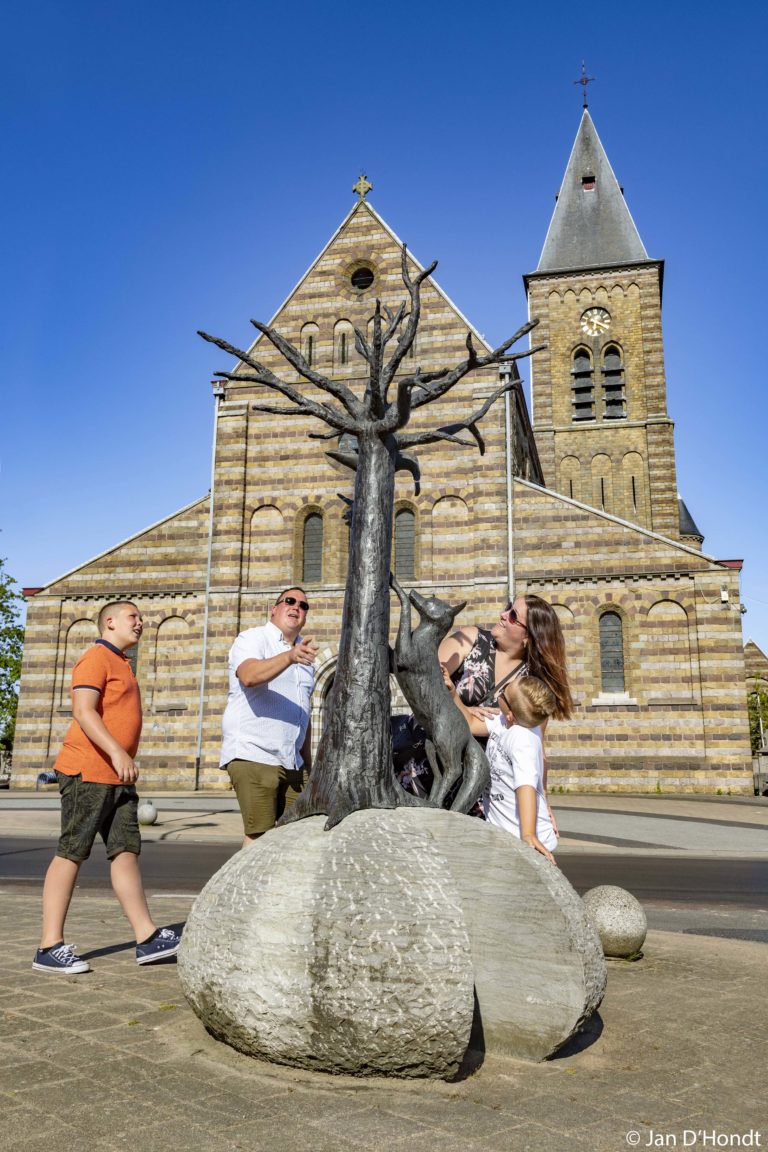
This monument is located in the municipal square in front of Passchendaele church. It consists of a bronze statue depicting La Fontaine's fable 'The raven and the fox'. The granite base refers to the internationally renowned Passchendaele cheese. Passchendaele cheese Passchendaele cheese is a world-famous, very creamy cheese. The cheese?
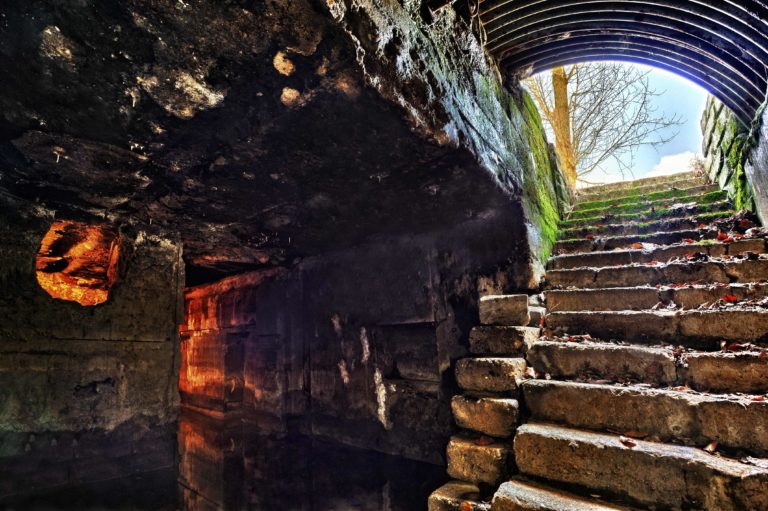
Discover this well-preserved German underground construction. Supposedly built as a medical aid station, it becomes a strongly defended and difficult to take stronghold during the Battle of Passchendaele. It is only on 15 September 1917 that a raiding party is able to capture the bunker. 2Lt Cryer is killed in?
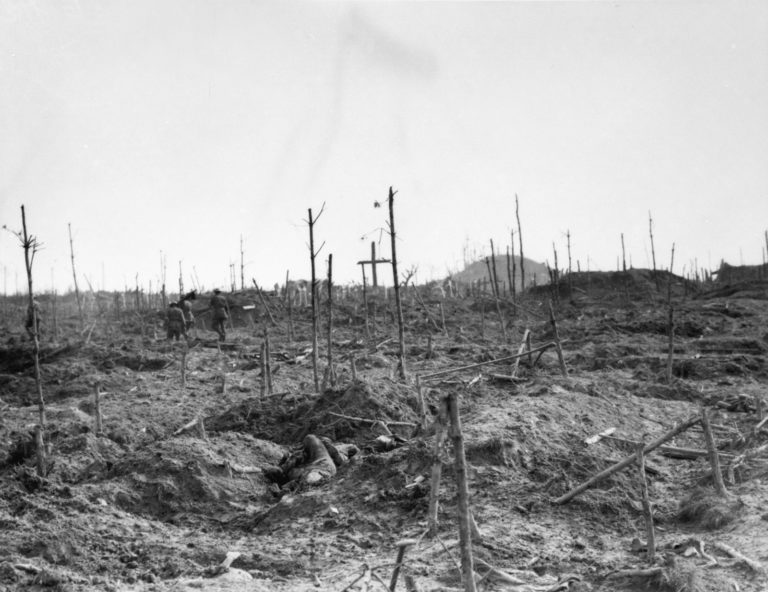
The Polygoon forest is a remnant of a large forest, once owned by the Marquis of Beselare and local abbeys of Zonnebeke and Nonnebossen. In 1914, it was owned by the state and used as a military training ground. Shooting range Even before Belgian independence, Polygoonbos was used by soldiers?
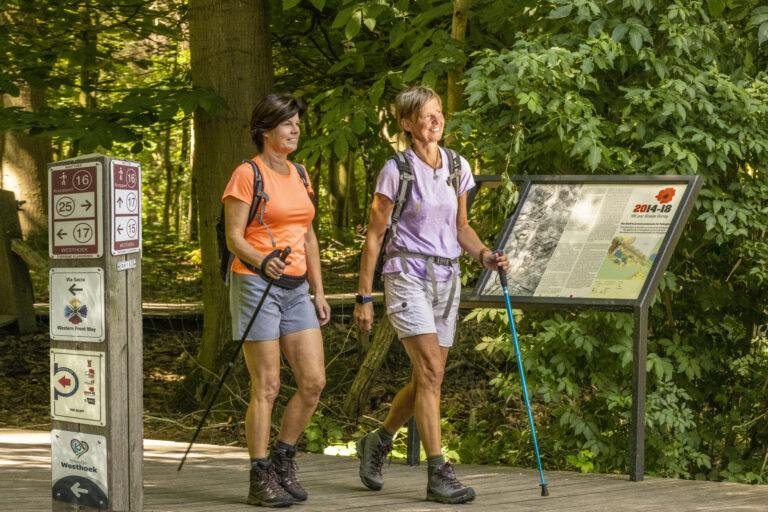
Sometimes you just want to take a walk around the block, with or without a dog. Sometimes you want to do a thematic walk and some people don't put on their walking shoes for less than 30 km. Due to its location on the Central West Flemish Heuvelrug, Zonnebeke is?
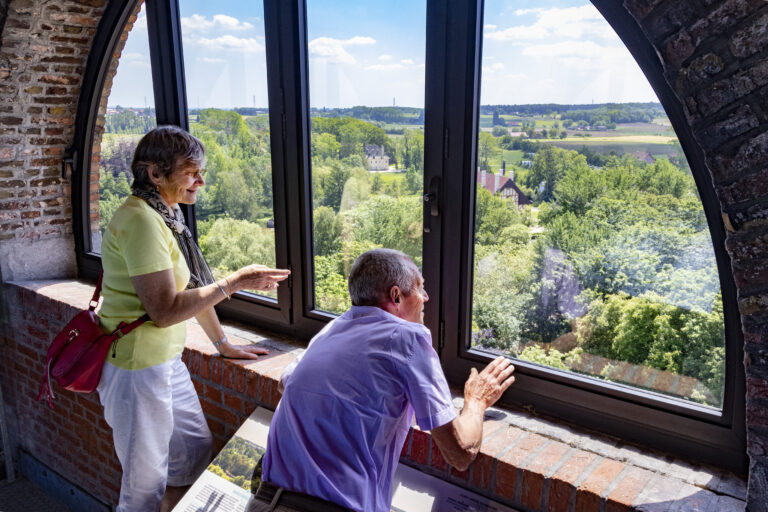
Scarred landscape The Church of Our Lady in Zonnebeke is the first modernist church built in Belgium after the First World War. The church was designed by renowned Bruges architect Huib Hoste. To make the tower with its panoramic view accessible, Zonnebeke is cooperating with the Horizon 2025 project of?
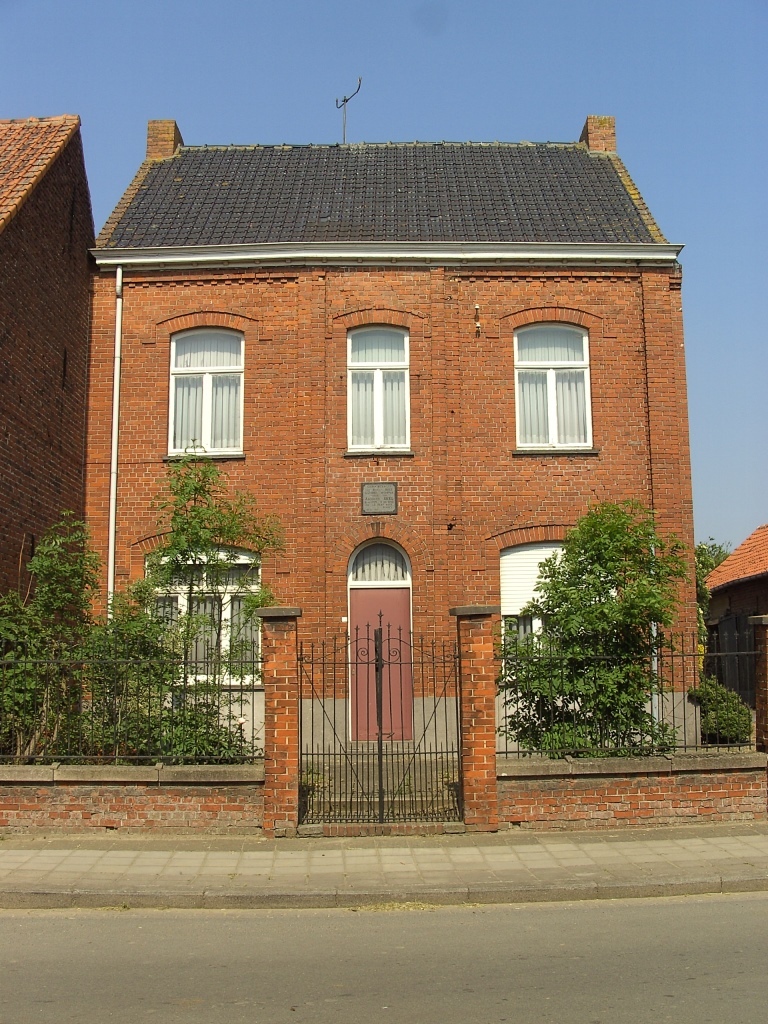
Jacques Brel The smallest borough of Zonnebeke, Zandvoorde is also sometimes called the Brel village for good reason. Jacques Brel's father, Romain was born in this village. A bronze plaque was unveiled at Romain's birthplace (Zandvoordestraat 45) in 1988, History of the Brel family The first traces of the Brel?
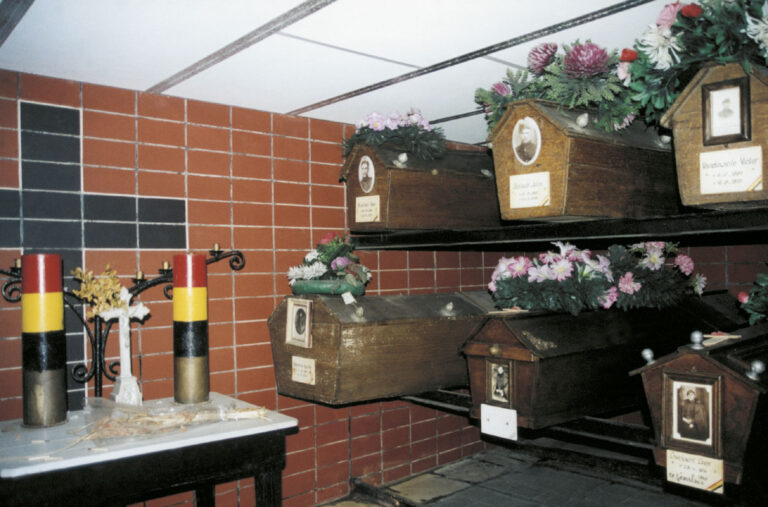
The Zonnebeek Crypt with 14 war dead and one independence fighter is unique in Belgium. Established in 1921, the municipal crypt contains 11 fallen from World War I and three from World War II. Frederic Godderis Of particular note is the coffin of Frederic Godderis. He fought for Belgian independence?

Stories for the road Before WWI, Zonnebeke is a typical agricultural community with little industry. The village has about 4,000 inhabitants. Life there was characterised by diligent labour, Sunday high mass and the fair as one of the annual highlights. However, the First World War thoroughly shakes up daily life.?
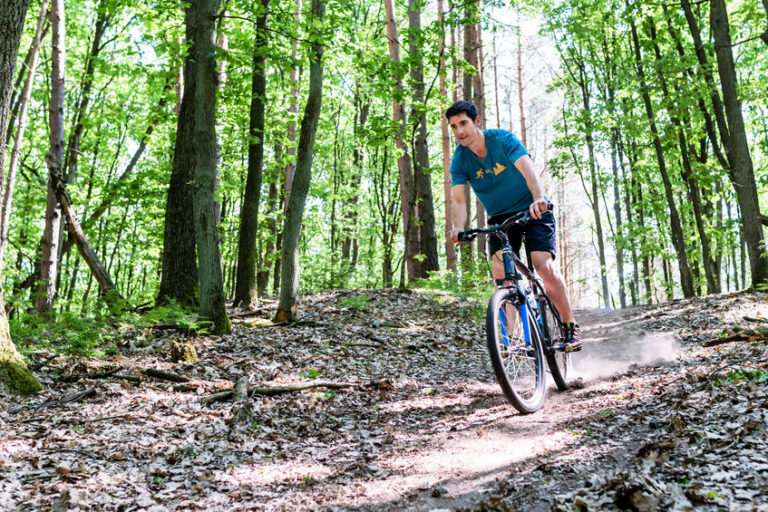
The Gustave Bourgois Mountain Bike Route consists of 3 loops, which together account for 40 km. The route links up with MTB Ypres. The route starts at the sports hall in Beselare. Gustave Bourgois The name refers to Gustave Bourgois, a man who had a great love for sports in?
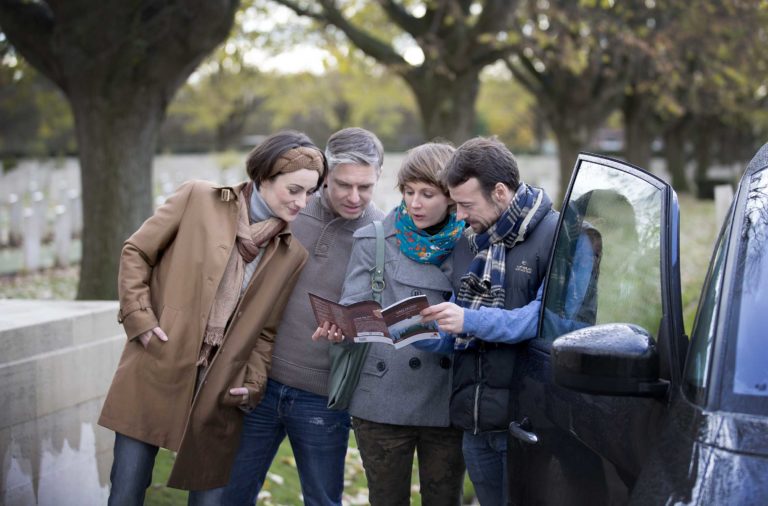
Today, the Westhoek forms a cross-border area with France, Wallonia and Flanders. During the war, there were no borders. Flemish Wervik and French Wervicq-Sud then became one and the same municipality. Pioneer Behind this German front quite a few German 'Pioniere' or engineer troops resided. They were responsible for the?
The buzzing grassland is a piece of nature in the Castle Domain of Zonnebeke that was given a boost by Regional Landscape Westhoek in 2018. Thus, the grassland was scarified and sown with some vanished and once common native herb species. No fertiliser or pesticides are used, resulting in a?
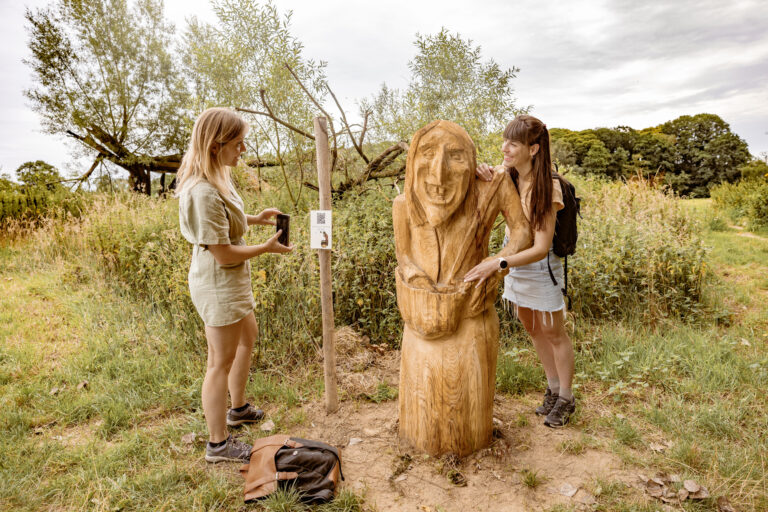
Lowie's Magical Witches Path is an enchanting walking route of approximately 5 km long. The route takes you through the breathtaking Reutel and Polygoon Forest. Follow the path and meet the ten Beselaar witches. In the meantime, be surprised by the magical beauty of nature. Along the way you will?
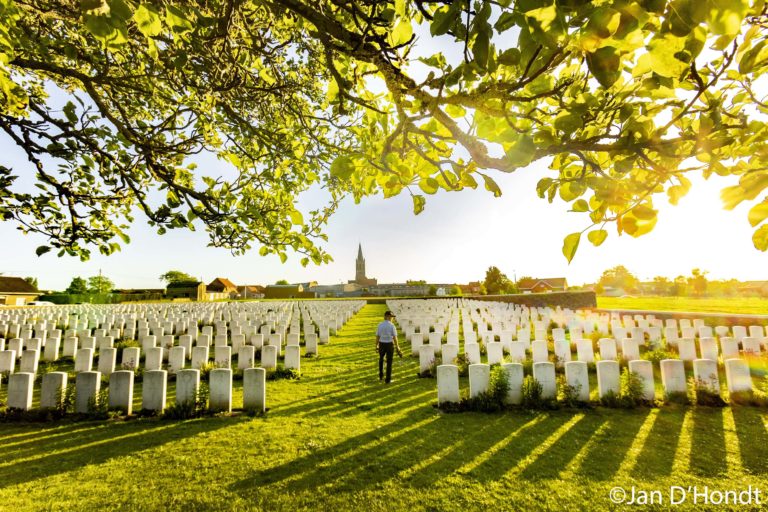
In the south of the municipality of Zonnebeke lies the borough of Zandvoorde. Near the drop is the CWGC Zantvoorde British Cemetery, where more than 1,500 fallen soldiers found their last resting place. 1100 of them have not been identified. The cemetery was designed by Charles Holden. Monument Of particular?
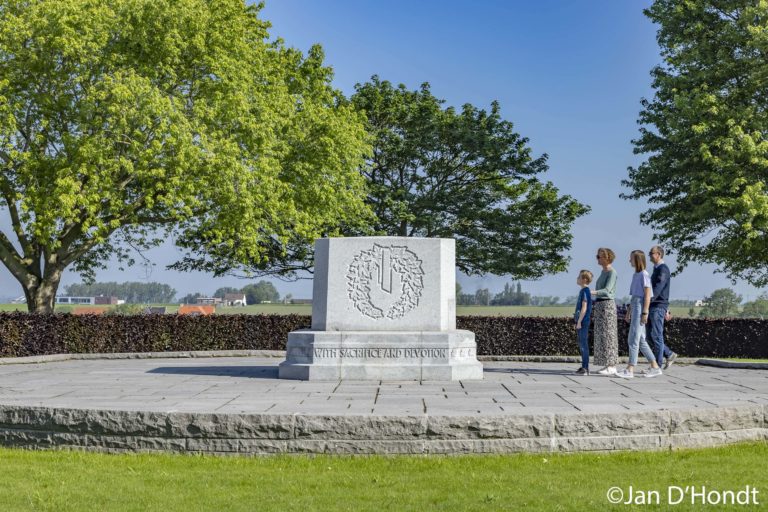
During the Battle of Passchendaele, Crest Farm, forms the key to the shattered village. The former farmstead is slightly higher than Passchendaele and the Germans build a fortified position there. Several machine guns guard the access roads. Canadian troops attack the position on 30 October 1917. Artillery and machine guns?
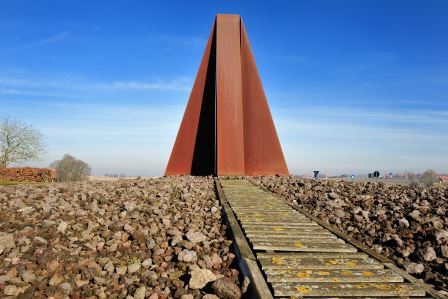
Sculpture Camiel Van Breedam This work symbolises the roads that cross and at the same time rise to the heights: sky, heaven, symbol of the millions of young people killed senselessly. The buttresses themselves are the symbol of supports, reaching for the sky, supporting walls that no longer exist, destroyed?
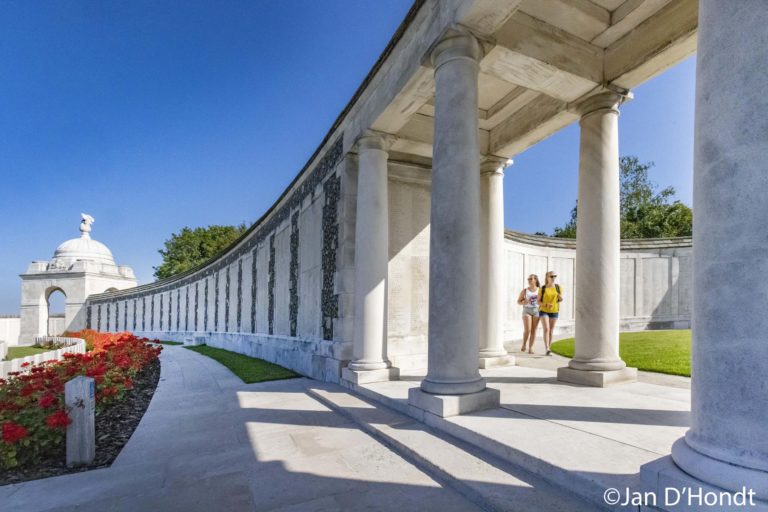
The 'Canadian Road to Passchendaele' takes you in the footsteps of the Canadian troops, who were given the difficult task of taking the ruins of Passchendaele in 1917. Along the way, you will learn more about this saddening campaign. After more than 100 days, they had advanced only 8 km?
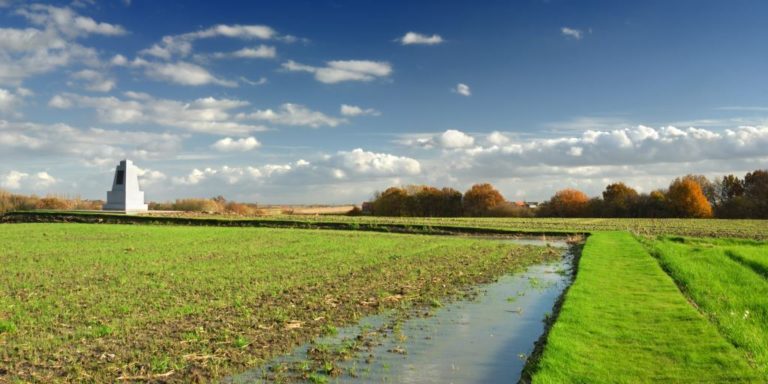
On 30 October 1917, the Fourth Canadian Division attacks from the south towards Passchendaele. In the process, the 85th Battalion, also known as the Nova Scotia Highlanders, put up a fierce fight at the spot where today this monument commemorates them. The 85th battalion The 85th Battalion tries to defend?
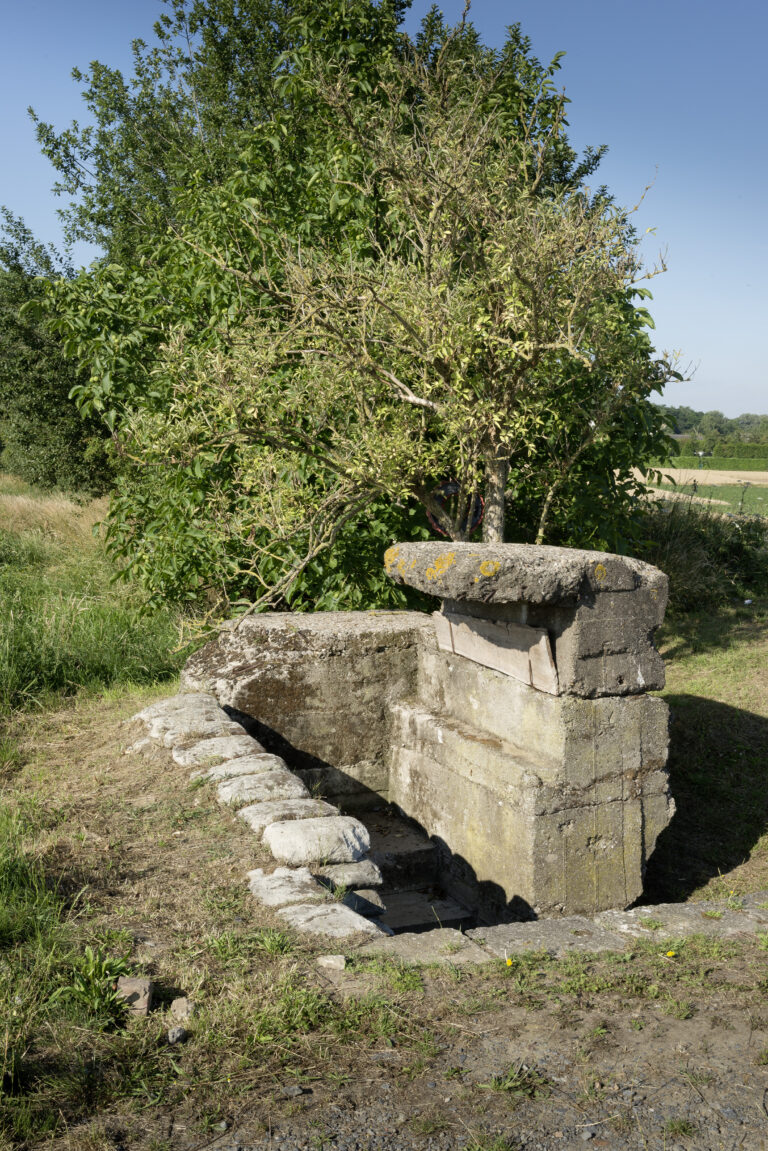
The 'Pioneer walking loop' is entirely dedicated to the German war story. Various aspects are covered along the route. For instance, you will learn about unprecedented construction work, which took place in our region between 1915 and 1917, and the wartime suffering on the German side. This route connects beautiful,?
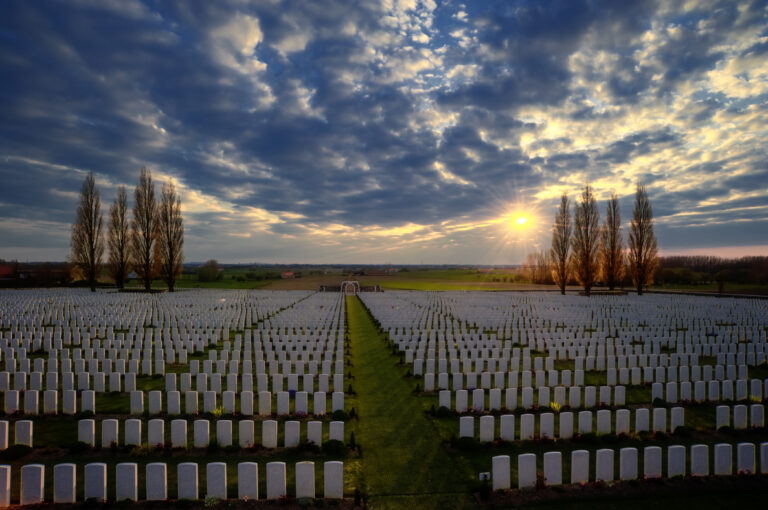
With its nearly 12,000 graves and 35,000 names of missing persons, CWGC (Commonwealth War Graves Commission) Tyne Cot Cemetery is the largest Commonwealth cemetery in the world, a silent witness to the Battle of Passchendaele. Originally 'Tyne Cot' was a fortified position in the German defence position Flandern I. Australian?
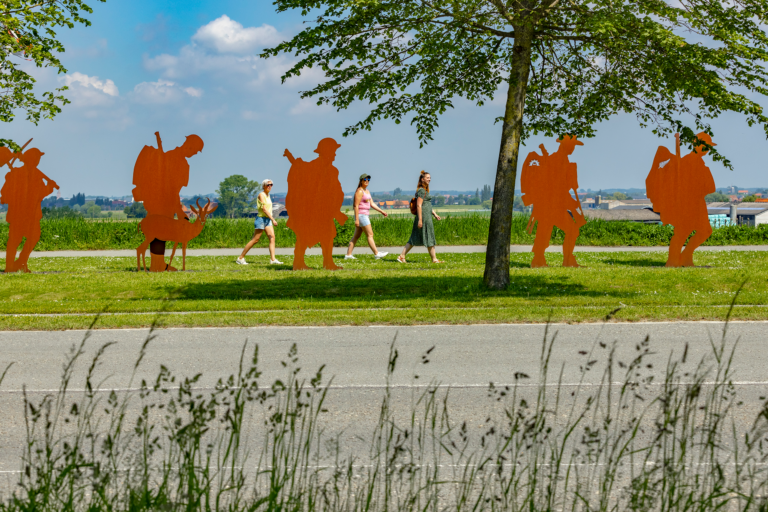
From the last weeks of September 1917 onwards, during the Third Battle of Ypres (Passchendaele Campaign), Australian troops - as part of the Australian and New Zealand Army Corps (ANZAC) - played a major role. They were almost constantly involved in a series of heavy battles in the centre of?
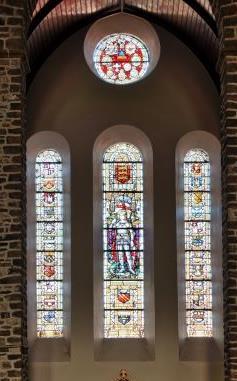
This beautiful stained-glass window was inaugurated on 13 October 1928 and can be found in St Augustine's Church in Passchendaele. The centre represents St George, with the coat of arms of Lancaster above and the coats of arms of the cities of Manchester and Salford below. Along both sides of?
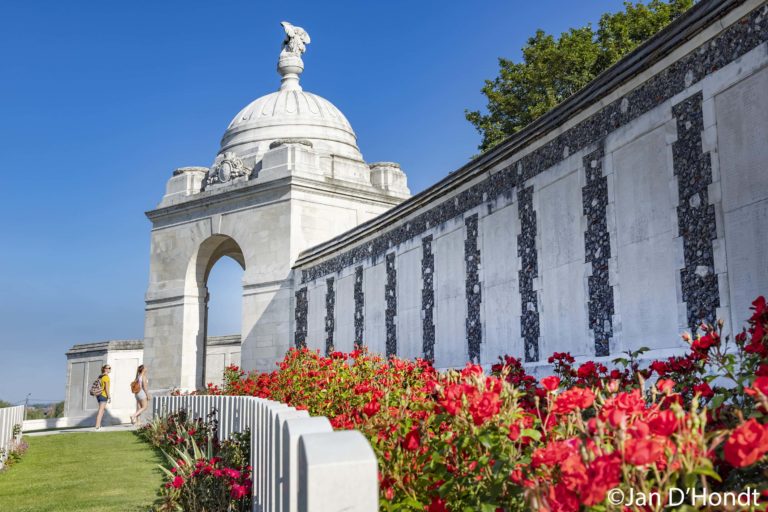
The northern walking loop connects the castle grounds of Zonnebeke with the historic battlefields on the outskirts of Passchendaele. That village was taken by the British at the cost of ten thousand lives in 1917. Along the route, two nations that fought at the Battle of Passchendaele stand out strongly.?

Zonnebeke is an ideal starting point to explore the region by bike. No bike with you? Rent a bike through the following partners: Landlord Street Town Contact Rijwielen Tillo Martin Ommegang Zuid 1 8840 Westrozebeke +32 (0)51 78 04 90 Fietsverhuur Camping Jeugdstation Bolwerkstraat 1 8900 Ieper +32 (0)57 21?
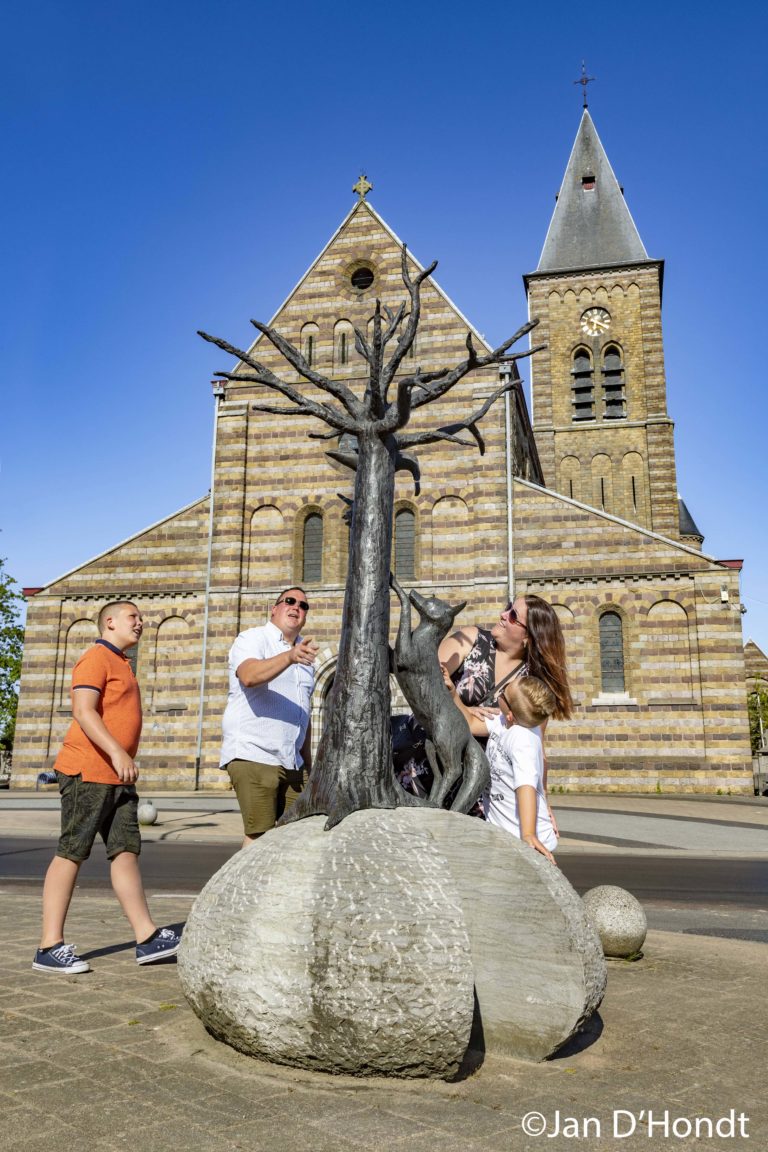
Passchendaele, the Cheese Village, is inevitably associated with the famous cheese of the same name. This cheese goes back to 1932, when the Donck family laid the foundations of the Passchendaele Cheese Factory. They started producing cheese on the farm at 's Graventafel. The small business soon grew into a?
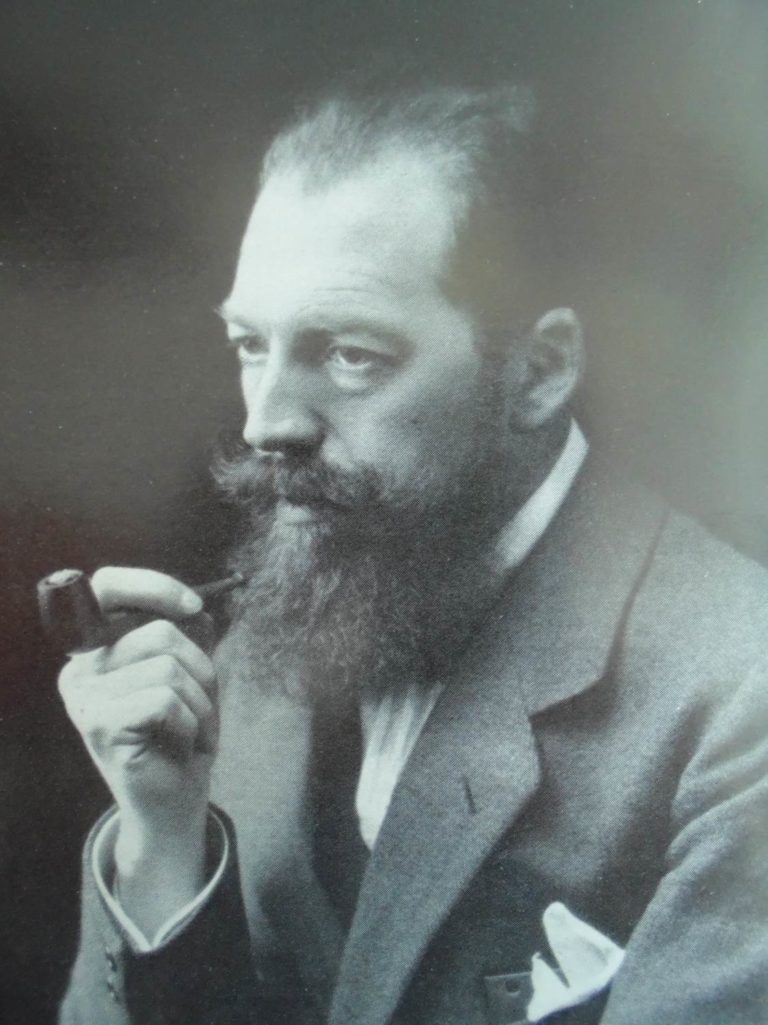
Architect Huib Hoste (1881-1957) can be seen as a pioneer of modernism in Belgium. Born in Bruges as Hubert Leon Bruno Jean Marie Hoste, he grew up in a traditional French-speaking and strict Catholic milieu. Neo-Gothicism and eclecticism characterise his formative years. However, he falls under the spell of Dutch?
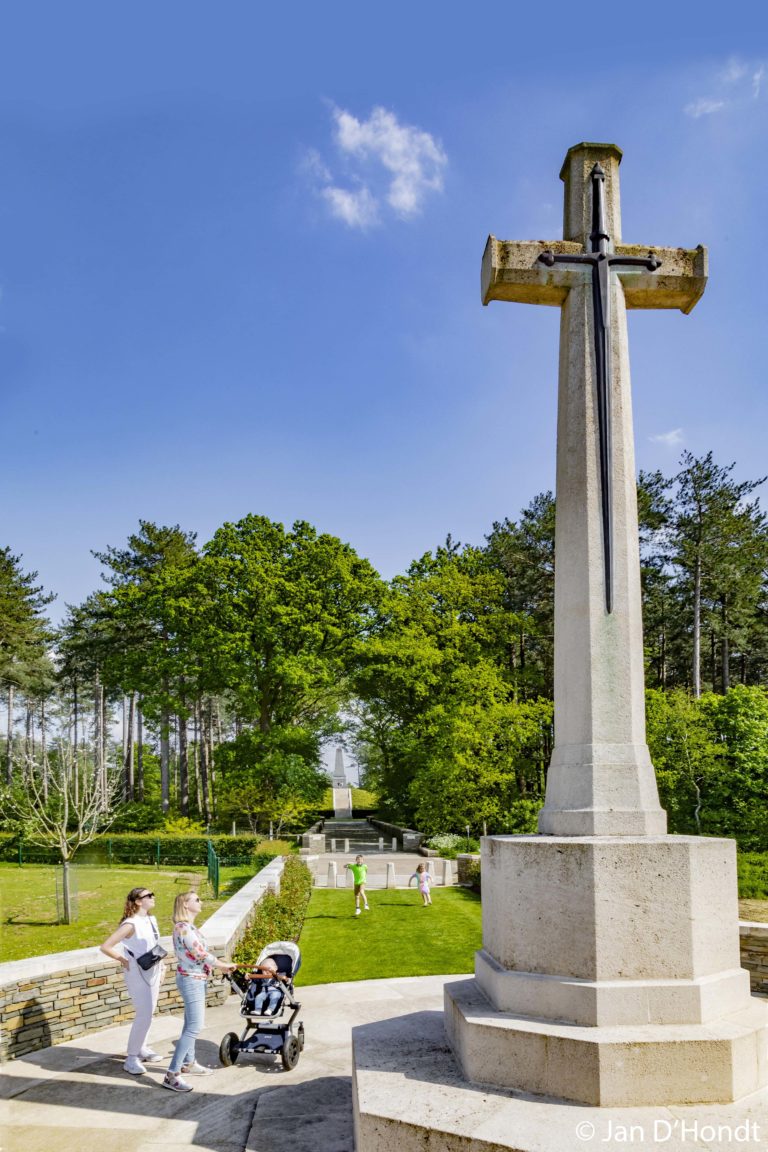
'Mission Polygon Wood' combines personal stories of fallen soldiers with hands-on tasks in Polygon Wood. This wood, some three minutes' drive from our museum, together with CWGC Tyne Cot Cemetery, is among the most important Westhoek sites that recall the First World War. Besides the Commonwealth cemeteries Polygon Wood Cemetery?
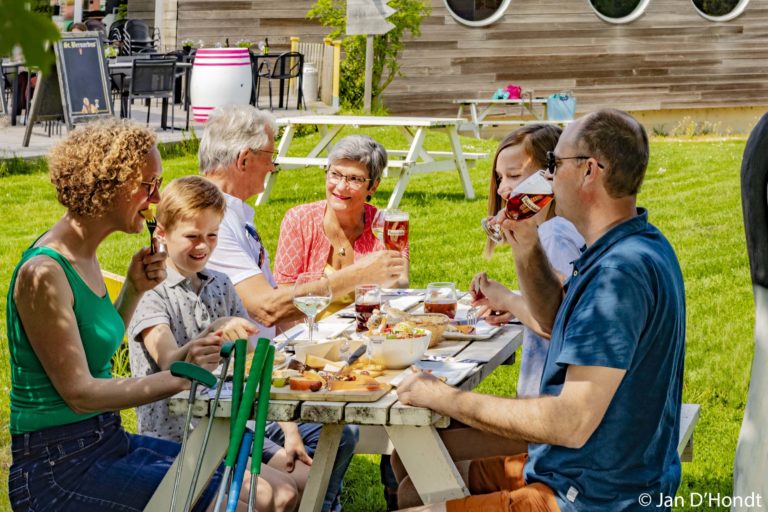
Children up to 8 years old Trial course Discover different dairy products in an active way and get answers to the craziest questions around cheese. Kids cheese quiz Complete fifteen tasks and discover the hiding place of the cheese thief! Besides a reward, you will also become a member of?
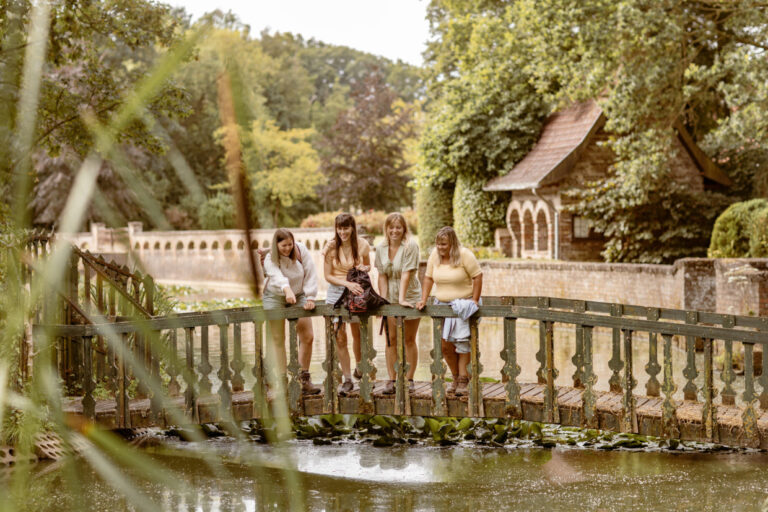
Good news for walking enthusiasts! Since 2024, Zonnebeke has had a walking junction network. The walking network covers five municipalities: Zonnebeke, Moorslede, Wervik, Langemark-Poelkapelle and Ypres. With 256 kilometres of footpaths and trails, it is the largest network in West Flanders. Toppers along the way Slow roads take you along?
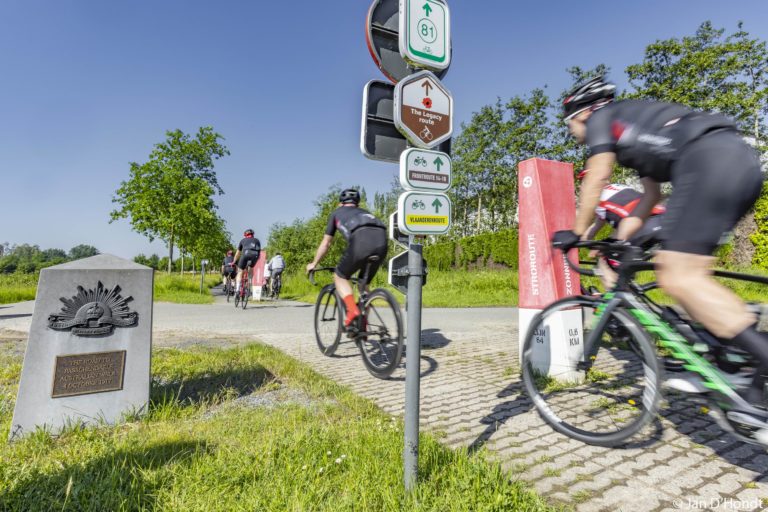
'The Road to Passchendaele' connects the Passchendaele Museum with CWGC Tyne Cot Cemetery. The half-hour walking route runs along the former railway line between Ypres and Roeselare. Line 64 was frequently used to transport beets and straw and was soon nicknamed, "the straw route". Road to Passchendaele A railway line?
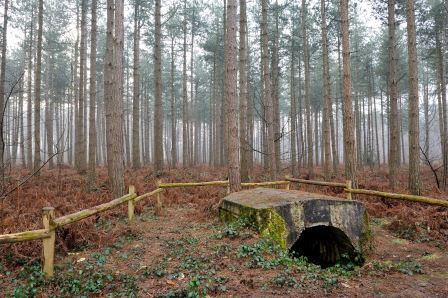
In the winter of 1917 and spring of 1918, New Zealand troops occupied the Polygon Forest. They built some concrete structures there, poured over curved corrugated sheets called 'Baby Elephants'. The edges were trimmed with straight corrugated sheets, a rather unique method of construction. Two such structures in the Polygon?
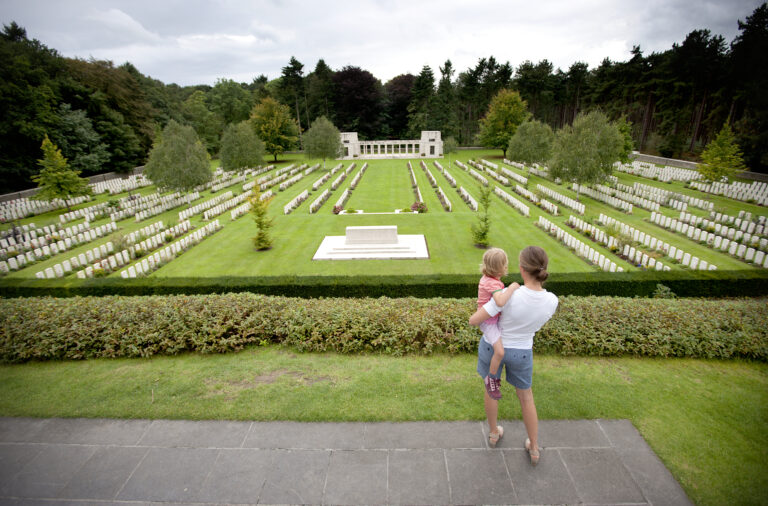
The New Zealand Forces Memorial is located opposite the CWGC Buttes New British Cemetery. Here the New Zealanders who went missing near Polygon Forest in the winter of 1917-1918 are commemorated. In front of the hill is the Stone of Remembrance. A special feature of the cemetery is the lack?

Spearmint Spearmint, also called green mint is used as a kitchen herb and for herbal teas. The herb proliferates due to the many offshoots it forms and it grows about 80 cm high. It flowers in July and August. The plant is mainly used to make tea. It has a?
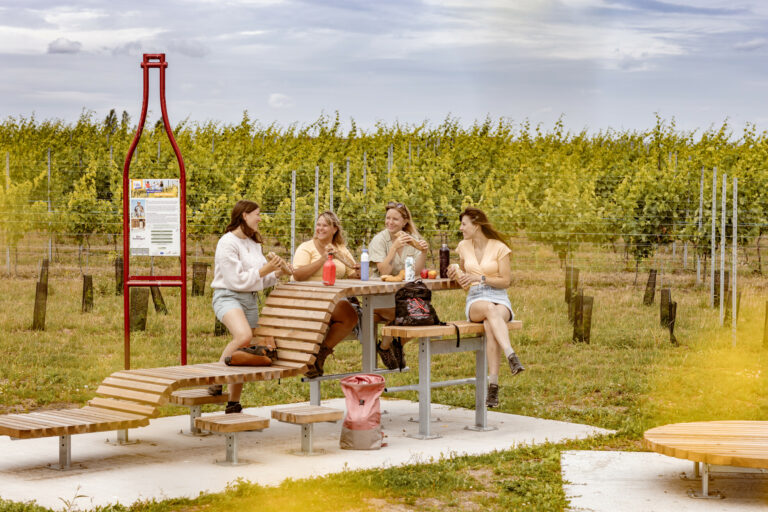
Zonnebeke put serious effort into its outdoor space in 2023 and invested in no less than eight new rest areas with a story. Because as a walker or cyclist, it's good to be able to take a break during your outing! For the realization of these resting points, the municipality?
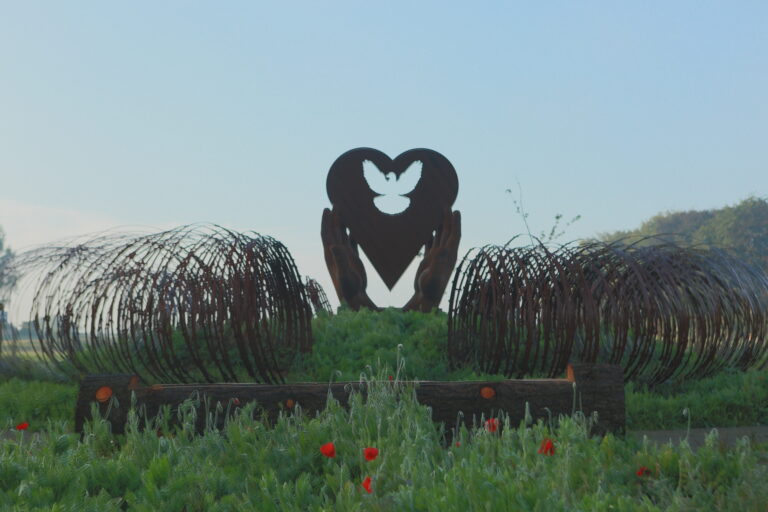
The Polygon Wood Peace Forest is more than a forest. It is a place that reminds us of the horrific events of the First World War. Each of the 519 standing trees in the wood commemorates a known fallen soldier who found his final resting place in one of Polygon?
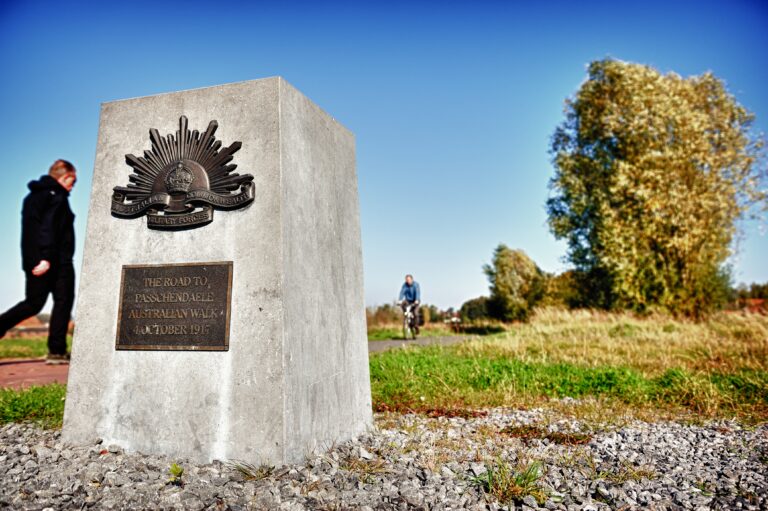
'The Road to Passchendaele' is a piece of pre-war railway, running from the Memorial Museum Passchendaele 1917 towards the Tyne Cot Cemetery at Passendale. Along this small stretch of historic route, which is about 2 km long, many Commonwealth nationalities fought in 1917. Practical info Can go with a guide?
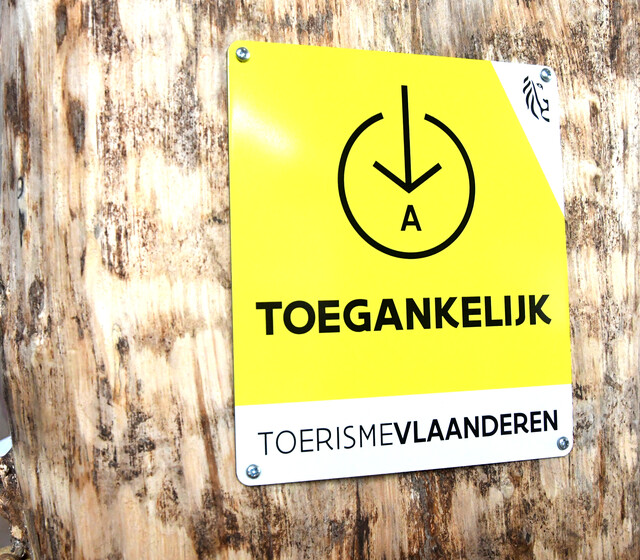
In Zonnebeke, it is pleasant for everyone to go outside and enjoy nature. For people with reduced mobility, there are the following options for a pleasant walk: Firstly, you can take a nice walk in the Chateau Domain which has barrier-free, paved paths. In addition, in cooperation with Tourism Flanders,?
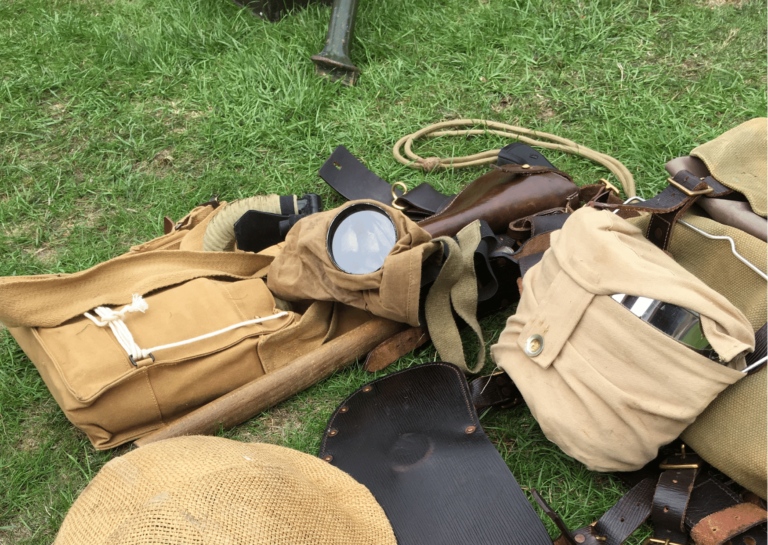
Ever met a World War I soldier or nurse? Probably not! With 'soldier in the classroom', pupils get that chance. A specially trained narrator will come to your class packed and in uniform. Are you also visiting our museum? Then you can also book 'soldier in class' in our education?
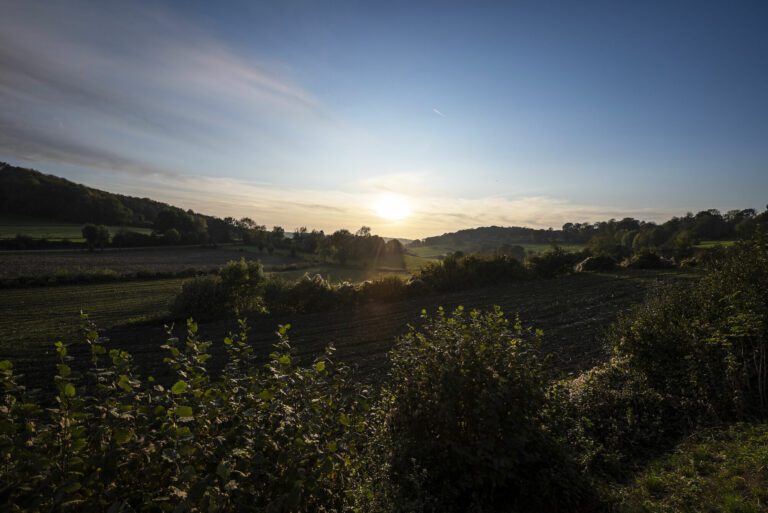
Zonnebeke is virtually the anchor point for long-distance cyclists, with no fewer than three of the nine Flemish iconic cycling routes passing through it. Ideal for a multi-day cycling holiday in Flanders. Each iconic cycle route connects the most beautiful parts of the Flemish landscape via attractive cycle paths and?
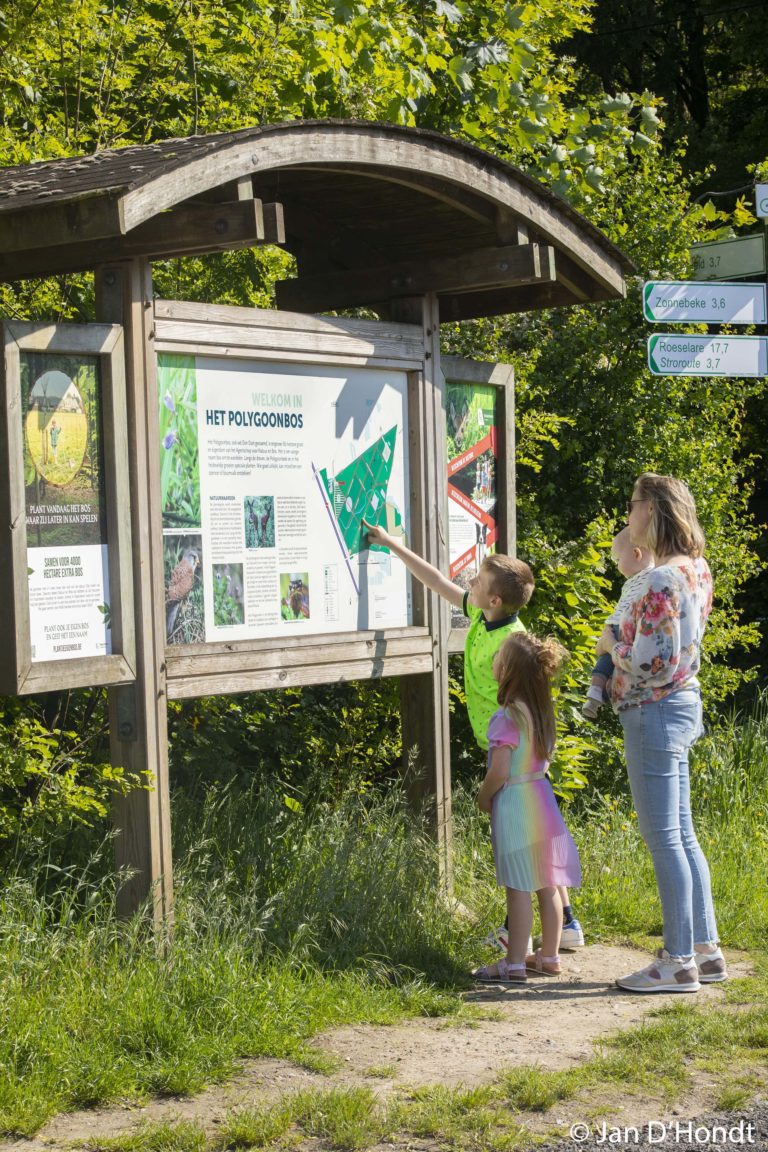
The Polygoonbos (Polygon Forest) is located on the Mid-West Flemish ridge. It is a paradise for people and animals. Children can romp around in the play area. You can take lovely walks along the beautiful avenues. This forest is also the place to be to spot many animals: birds of?
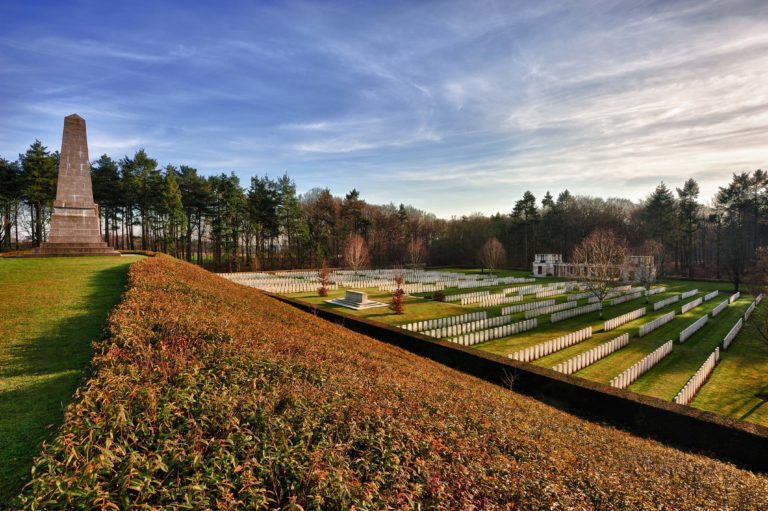
As we approach CWGC Buttes New British Cemetery, we walk in the middle of what was a pre-war Belgian cavalry horse racecourse from around 1874. Soldiers billeted at Ypres braved numerous obstacles there, such as movable hedges, walls and wells. After the war, it was decided to reforest the entire?
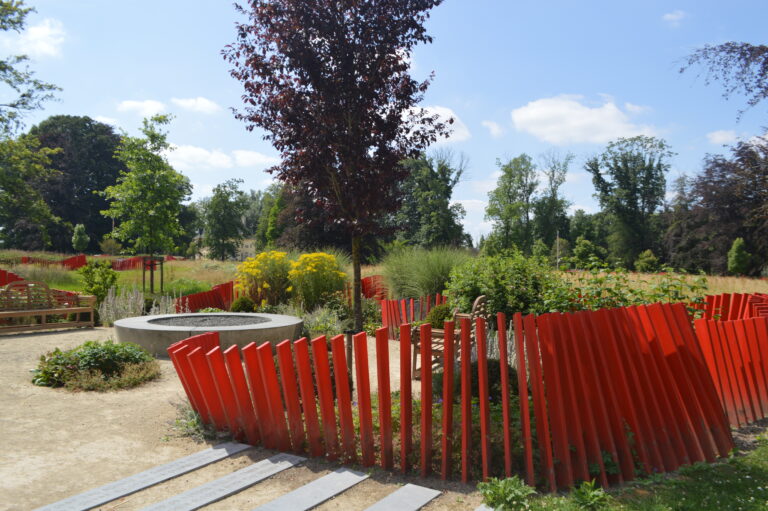
The 'Passchendaele Memorial Gardens' project is part of the 'Legacy of Passchendaele' master plan. Part of this project is to reunite the two castle parks that have been separated since 1960. Around the picturesque 1933 manor house, the landscape park will be redesigned from June 2013. Landscape, recreation and education?
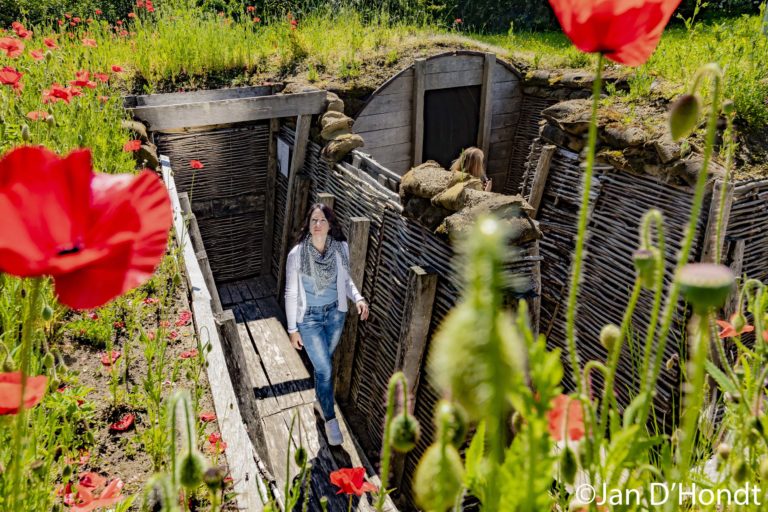
The Memorial Museum Passchendaele 1917 presents the historical story of World War I in a moving and vivid way, with a special focus on the Battle of Passchendaele. This 1917 battle is known as one of the most gruesome battles of World War I, with nearly 600,000 casualties for a?

The Zandvoorde forest is part of the Host Forest. It was during the Middle Ages that various houses of worship in the Ypres region received a lot of forest land as donations. During World War I, these were completely destroyed. Now they are owned by the OCMW. Every season creates?
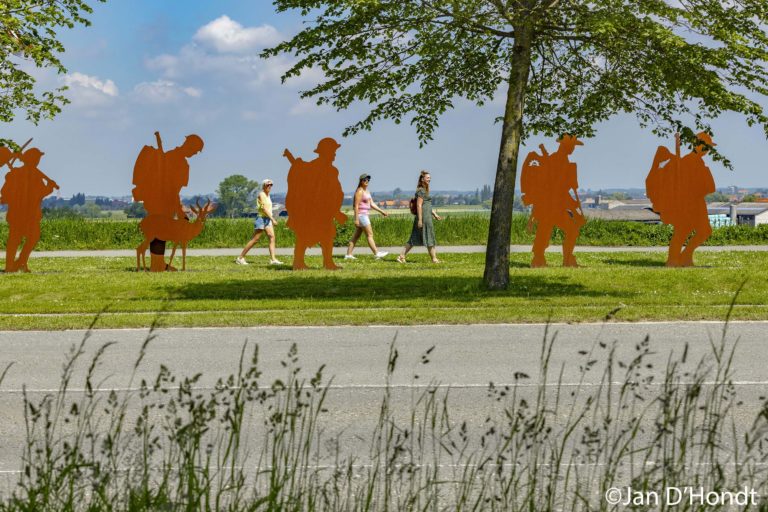
This Scottish memorial is set in a historically appropriate location. The site chosen is on the height of Frezenberg because this is the area where the Scottish 15th Division was involved in a series of bloody attacks on both 31 July and mid-August 1917. The site offers a perfect view?
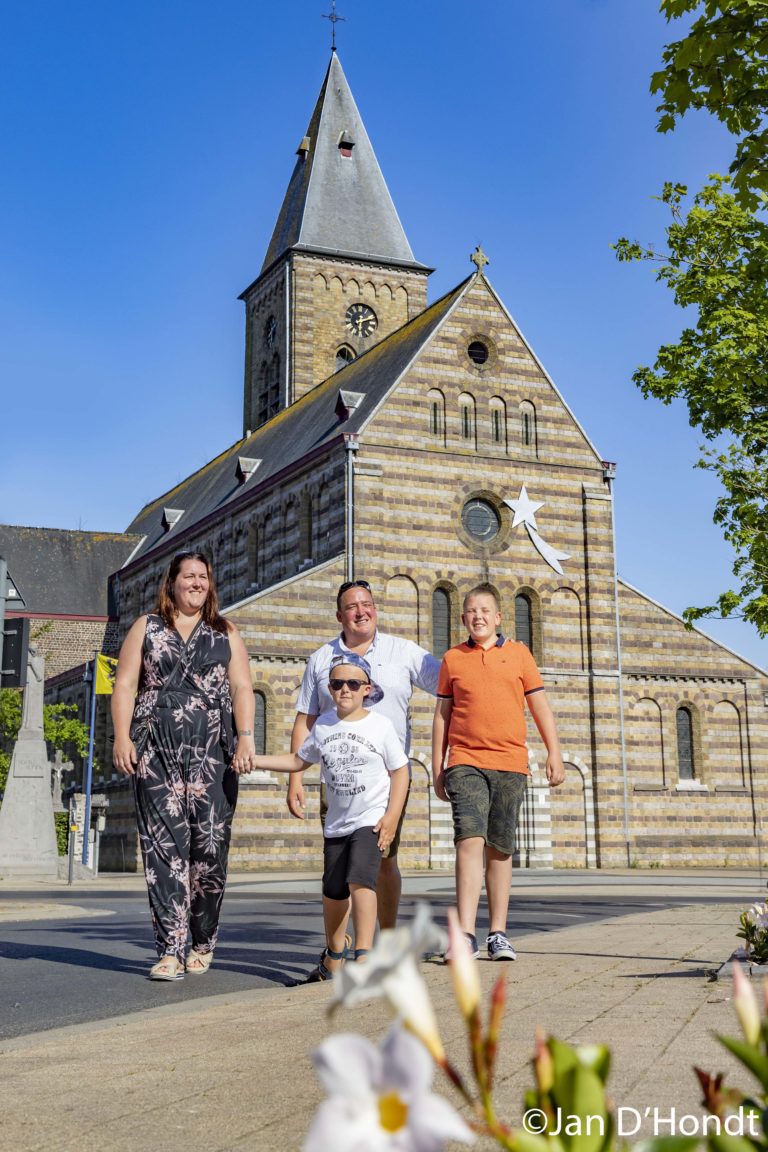
The original Romanesque church dates from the 11th-12th centuries. This old church was replaced by a neo-Romanesque building in 1904, integrating the former choir as a side choir. Part of the original ironstone is thus preserved. During World War I, the building was completely destroyed, but the ancient iron sandstones?
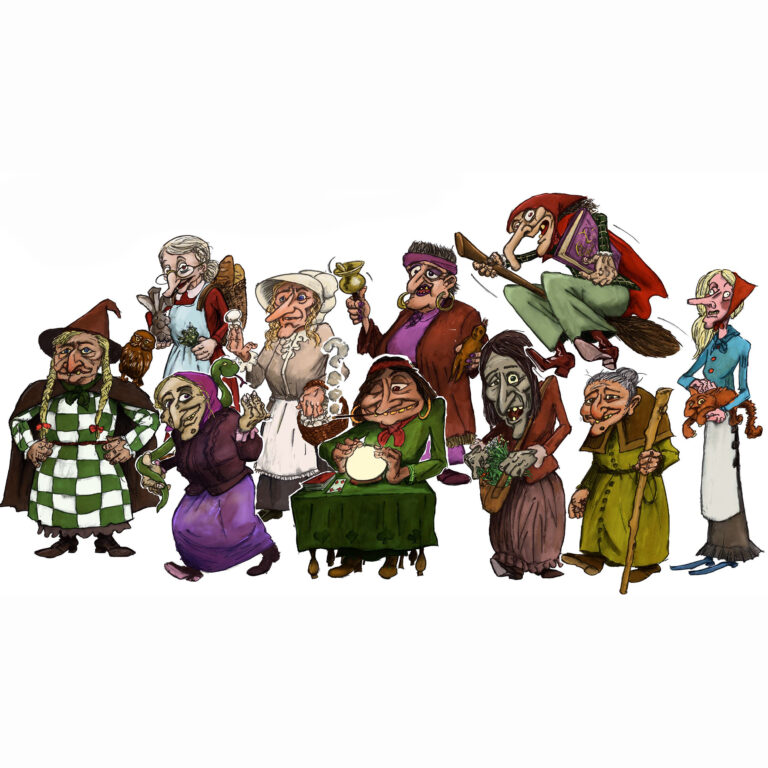
Beselare is a well-known as the witches’ village. 'A giant witch, a flying witch, a crazy witch, a ponderous piece of furniture, with naughty black eyes and a defiant gaze, and a nose like a peck.' This is how Calle Bletters is described. Other well-known witches are Clette, Babbe, Dokke,?
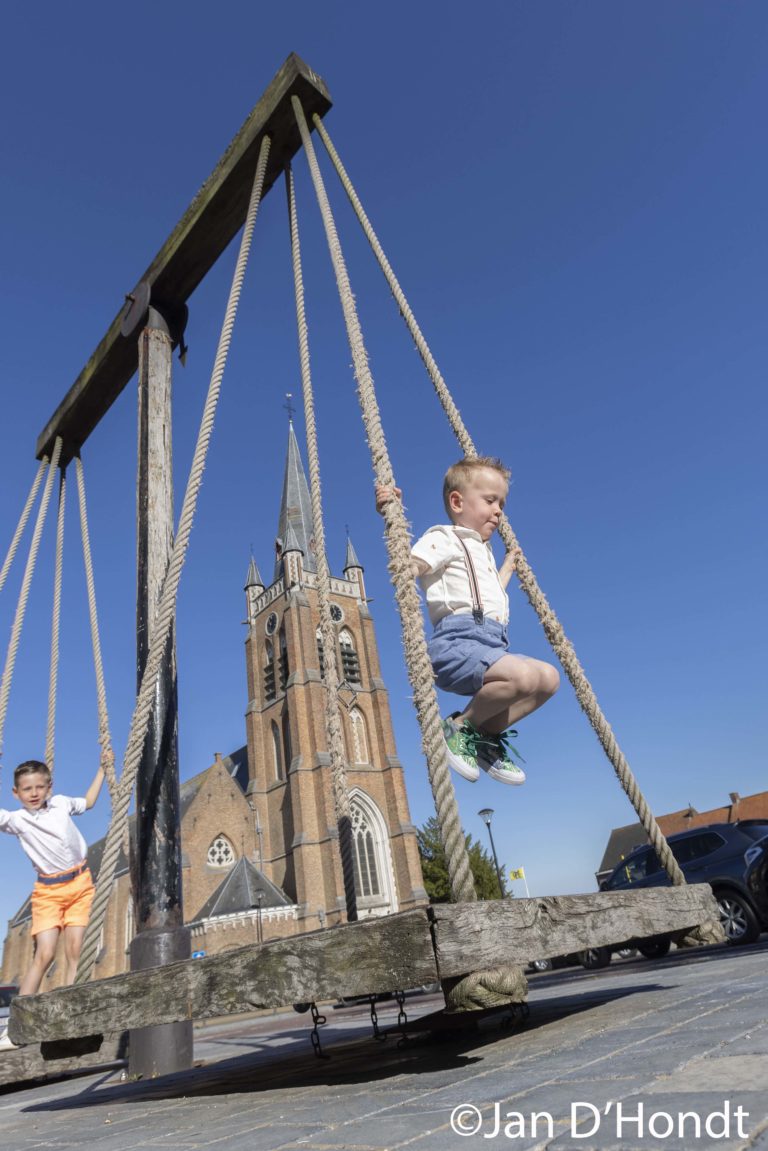
In Beselare's market square stands the bronze Witch Monument, a witch stirring in her magic pot. A little further on is the Heksenwaag. This harks back to the Dutch custom of checking whether or not someone was a witch. Dare to defy fate and stand on the Heksenwaag. Perhaps the?
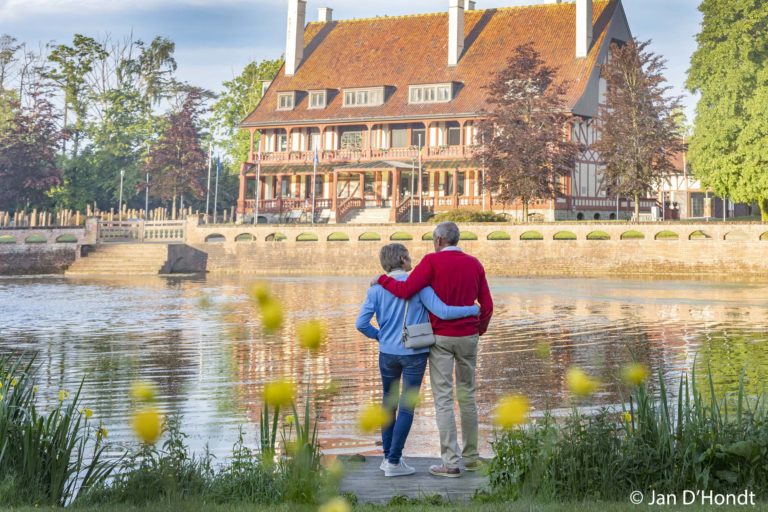
The historic castle grounds of Zonnebeke are home to the Passchendaele Museum, the municipal library 'De Letterschuur', the Koklikoo and the Zonnebeke Tourist Office. This is the ideal starting point for exploring Zonnebeke. Various walking and cycling routes depart from here along car-free paths. Less than three kilometres away are?

Looking for a fun activity for young and old? Since May 2018, the Old Cheese Factory has been guaranteeing a brand new minigolf course with no less than 18 different courses! Each golf course is equipped with a different obstacle for maximum fun. The course is dressed with real objects?
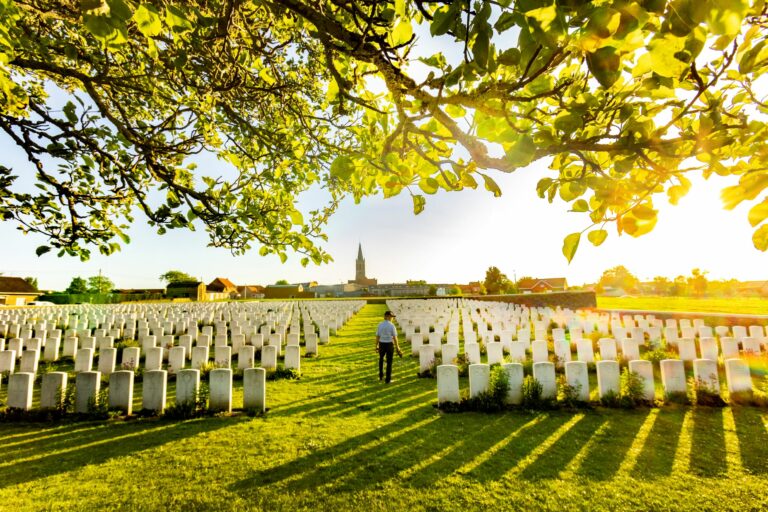
The 'Zandvoorde walking loop' follows the theme of '2014-2018 - 100 years of the Great War' and tells the story of Zandvoorde during the First World War. The village held an important strategic position due to its higher position on the Mid-West Flemish Hillside. The unique view of the surroundings?
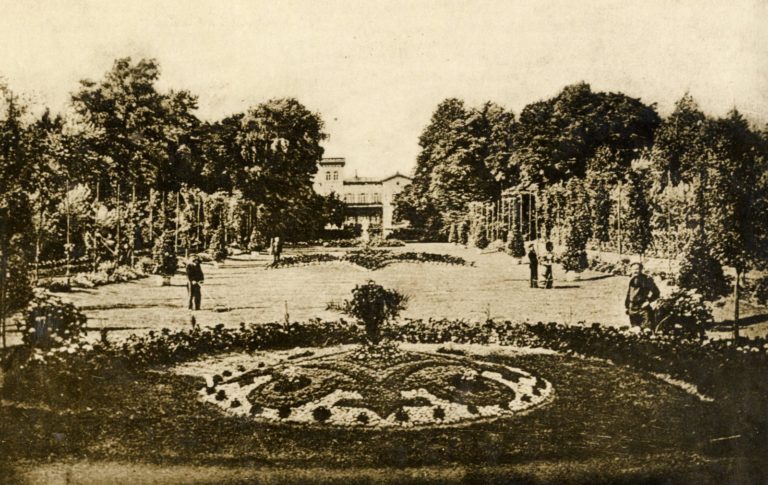
Flower castle It is almost inconceivable but during the war, a beautiful park lay in the valley of Polderhoek. Situated around the south-facing Polderhoek castle, it was even one of the most beautiful in the area. The locals didn't call it "Flower Castle" for nothing. It was laid out from?
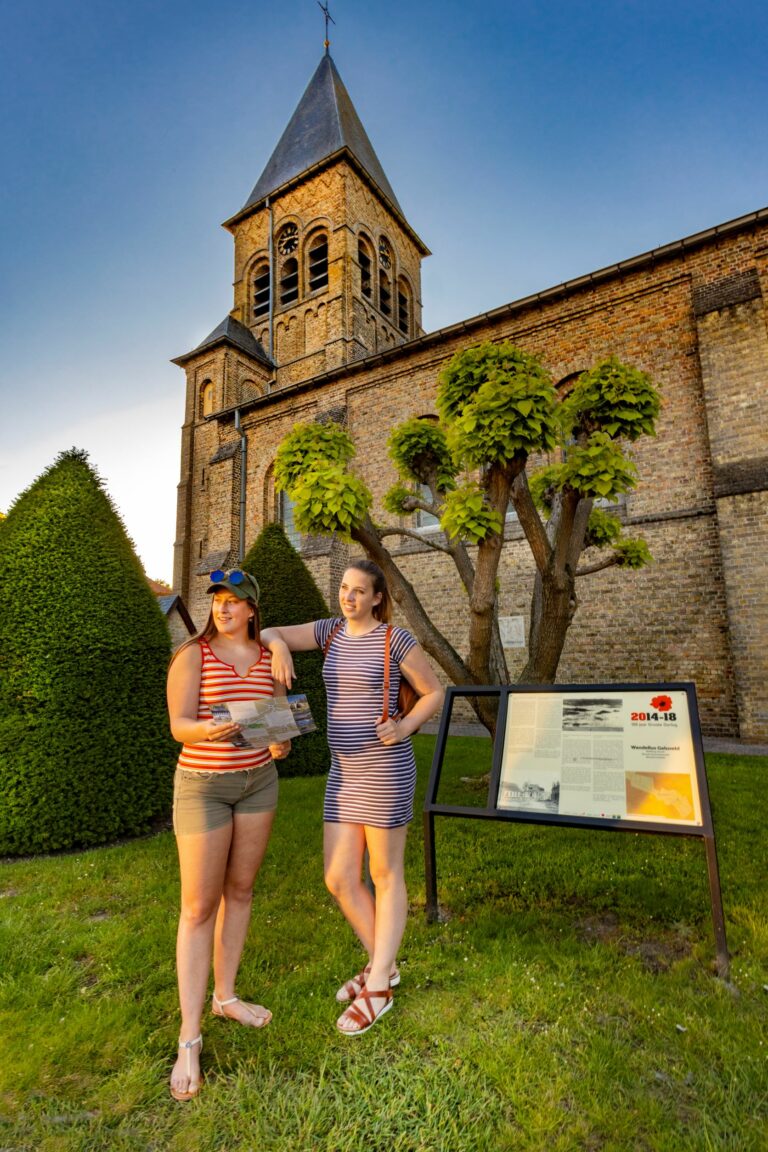
With the handy 'The Legacy' walking map, you can explore our municipality. Along the Geluveld Walking Route, you will enjoy wide-open landscapes and beautiful panoramas of the Leie valley and the Border region. Along the way, you will learn a lot about the history of this village, which was of?
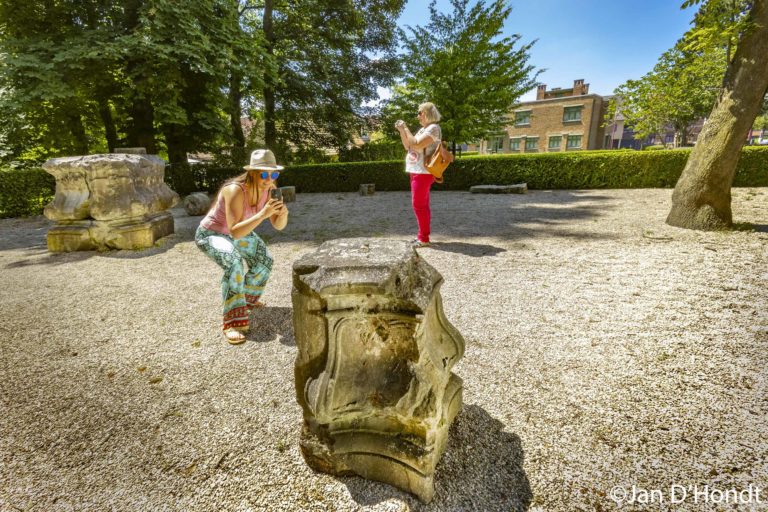
In the Abbey Garden, you can discover the different building phases (6 stages) of Zonnebeek's Augustine Abbey. The building history of this complex starts around 1197 and ran until the French Revolution, after which it was transformed into a castle with a park. Based on different pavements in the garden,?
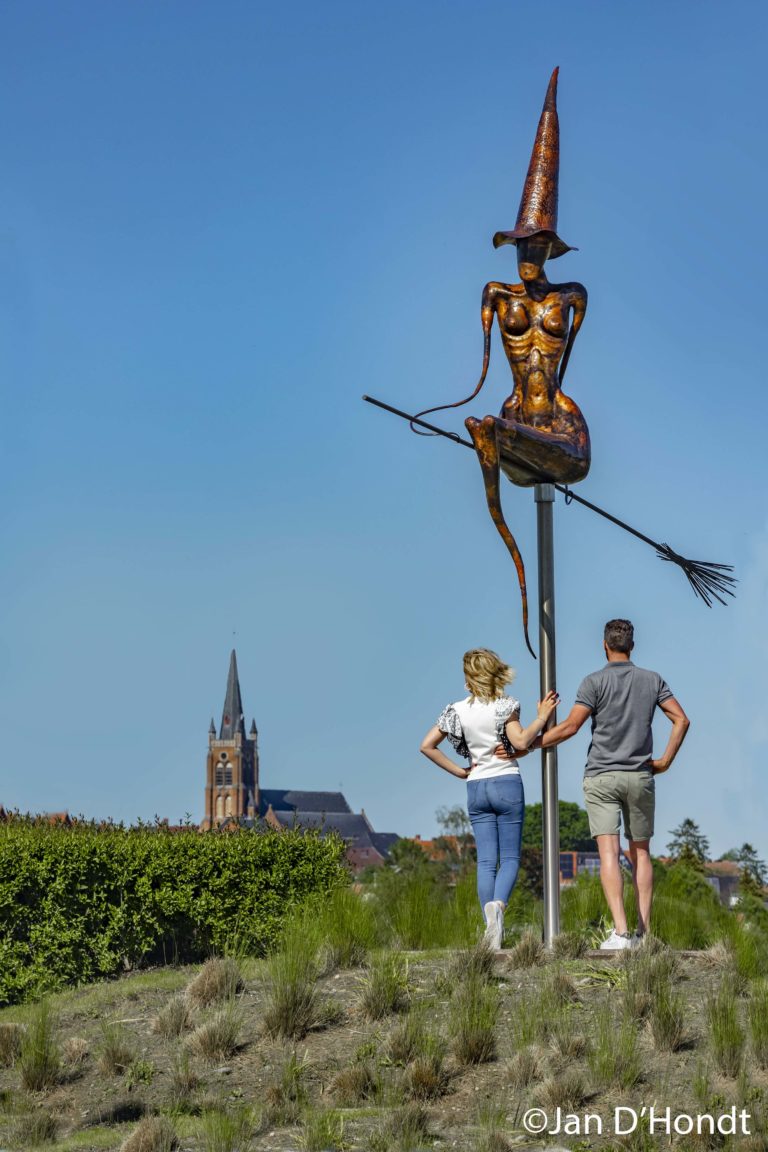
The Witches' Monument stands in the middle of the roundabout at the busy De Kortekeer intersection and is 5.5 metres high. Artist Luc Lapere sculpted it on behalf of the municipality of Zonnebeke. The monument depicts a witch on a broom. Not an ugly witch like in the cartoons, but?
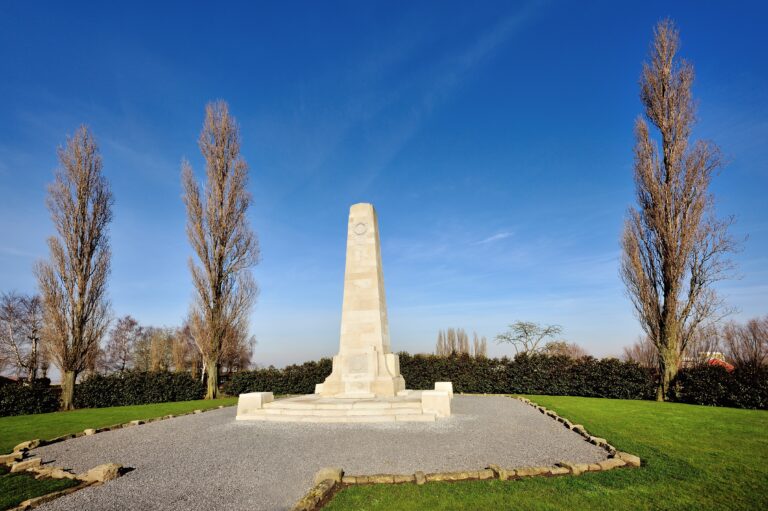
This thematic walk is all about the New Zealand war story. The trail starting at The Old Cheese Factory introduces you to the New Zealand battlefield of 1917. New Zealand troops, along with the Australians, were given the arduous task of taking the heights of Passchendaele in early October. Along?
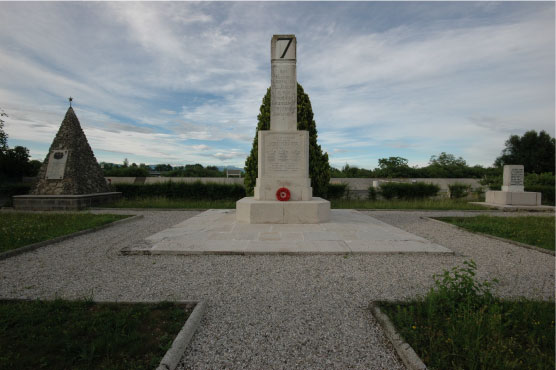
The memorial column in Beselare Street near the hamlet of Broodseinde, commemorates the 7th Royal Artillery Division and the battles in 1914 and 1917. During the Battle of Broodseinde on 4 October 1917, the Division suffered heavy losses here. The memorial was erected in 1924. Before the war, a small?
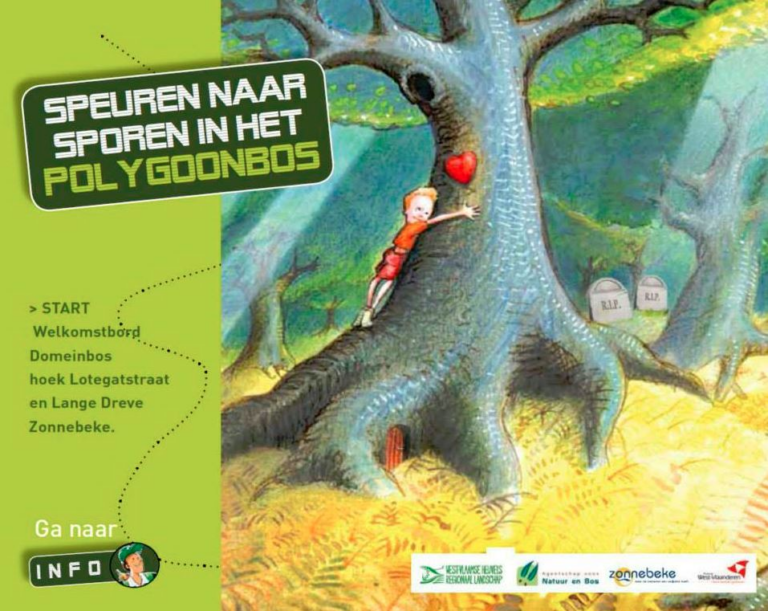
Ranger Eric saw a fox with a bright red snout this morning during his daily rounds. It looked like blood! The ranger decides to go out to find out if any forest animals are injured. Will you help him with that? You can solve the mystery through surprising mysteries, fun?
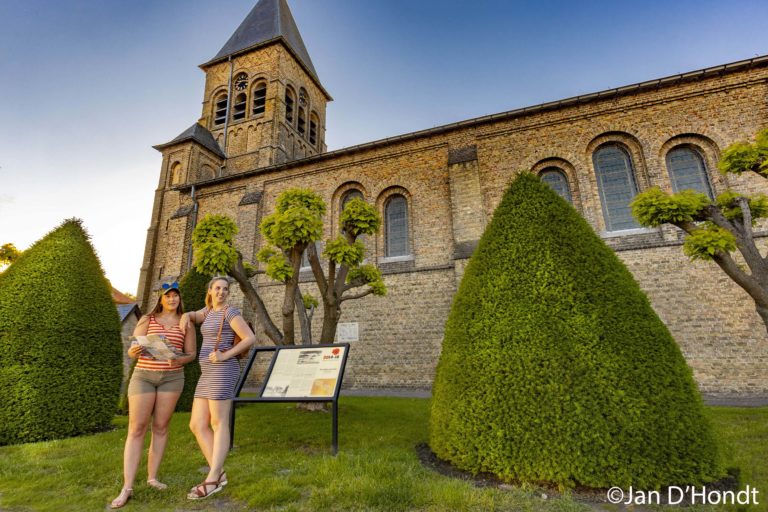
The church in Geluveld was also destroyed during World War I. The church administration appointed modernist architect Huib Hoste to build the church in Geluveld in 1920. After correspondence with increasingly negative tones between parish priest Delrue and the master builder and repeated adjustments, Hoste's appointment was finally withdrawn in?
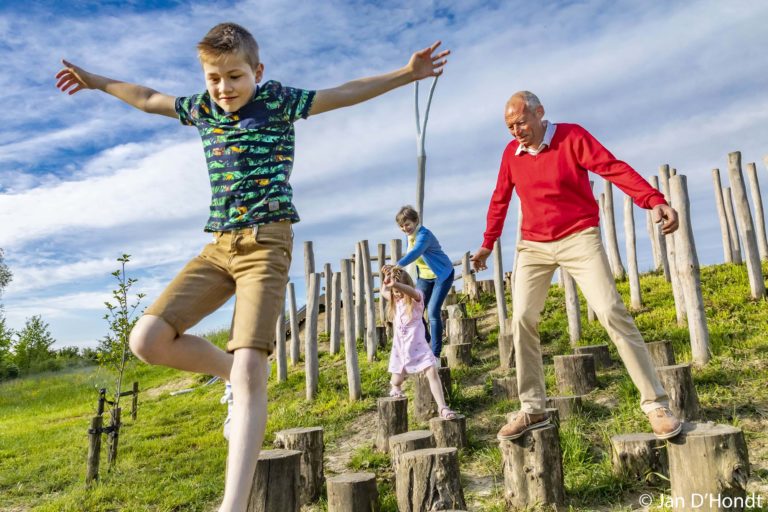
The Adventure Trail lets children and adults discover the 'Natural Game Landscape'. Step trunks, footbridges and trees bring you to a slightly higher viewing platform each time. Romp, climb, play ... and enjoy the beautiful nature in the meantime. It is a walk through the Zonnebeke Castle domain. Download the?
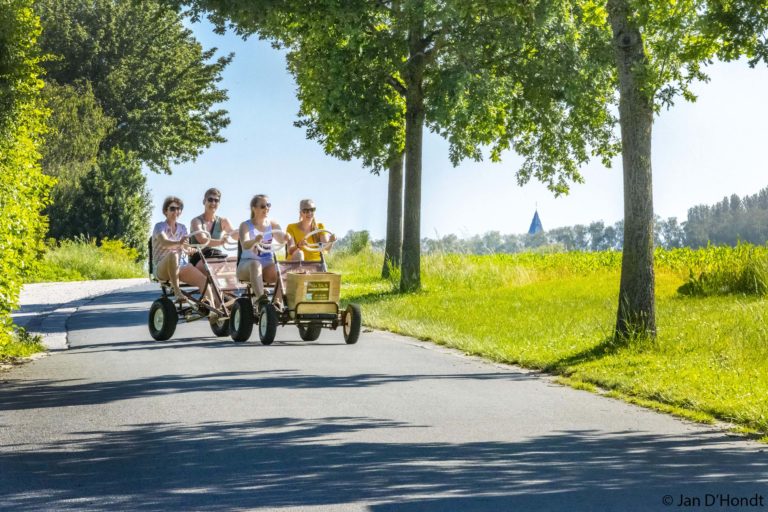
Exploring the area with a go-cart? This is definitely possible! Casa D&N offers go-carts for individuals and groups. This allows you to explore the area in a quiet and unique way. Don't know the area well? No problem! Dorine and Nico will give you plenty of tips on possible routes?
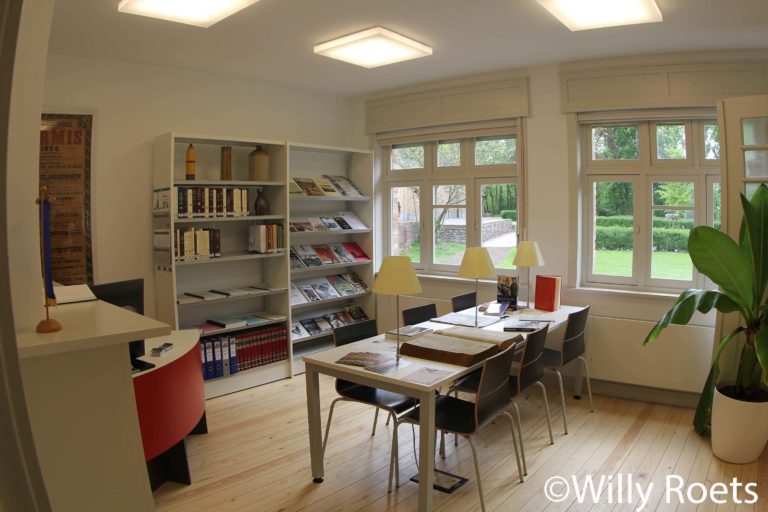
The knowledge centre is housed in the former presbytery of Zonnebeke, a modernist building designed by Huib Hoste. It is a place where researchers, students and the curious can go with their questions about the region's wartime past and heritage. Collection of the Knowledge Centre The knowledge centre comprises two?

With its beautiful location in the green, Zonnebeke is a municipality where walking is the ideal relaxation. Even with a physical disability, you should be able to go out. And then we know that surfaces, sanitary facilities and going out without barriers are very important. We therefore developed three accessible?
The signposted Tobacco Cycle Route starts at the National Tobacco Museum and takes you through the tobacco region around Wervik and Zonnebeke. Tobacco plantations colour the landscape. The route takes in the provincial domain De Palingbeek, the Polygoonbos and the Gasthuisbossen. Practical info Description: National Tobacco Museum, Wervik, Zonnebeke, De?
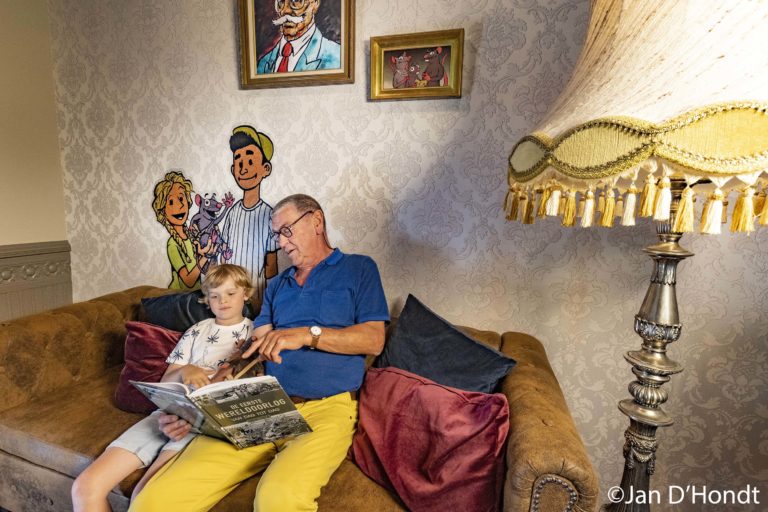
At the Passchendaele Museum, children can be taken in tow by Lisa, her nephew Louis and the museum rat Maurice. Lisa and Louis visit their grandfather, who collects all kinds of things from WWI in the castle of Zonnebeke. With an audio game, folding map and fun assignments, they playfully?
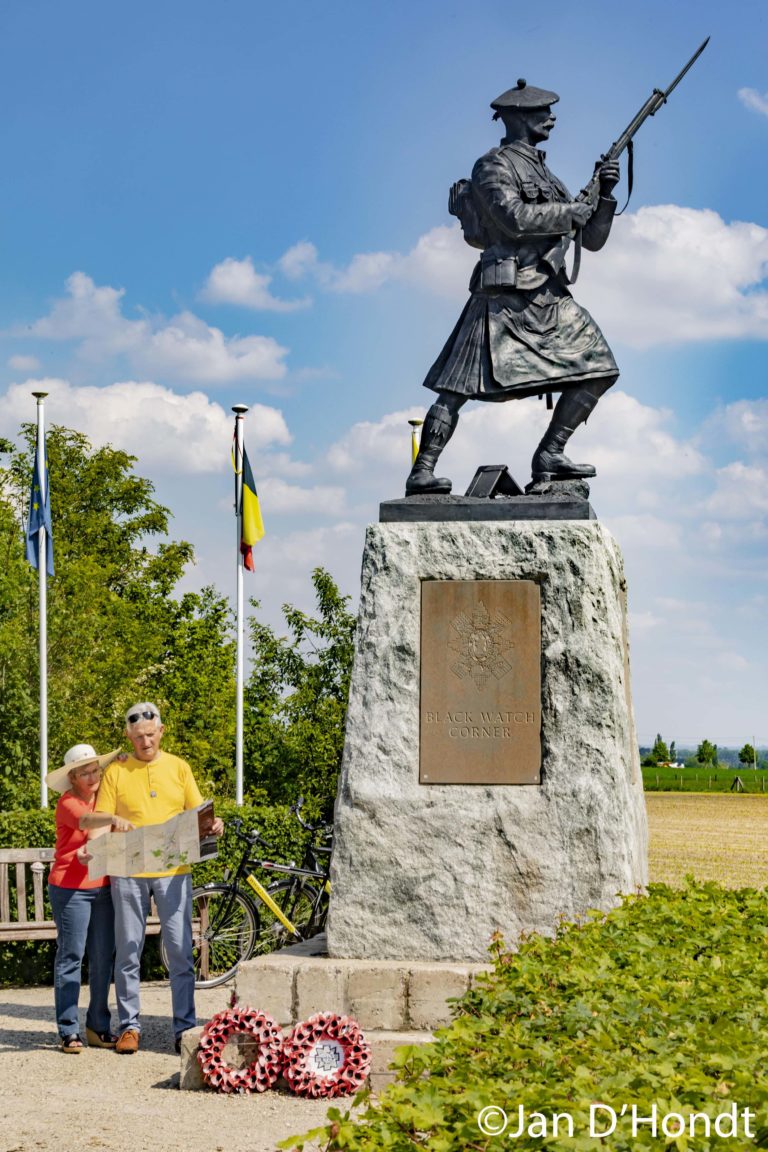
This statue of a soldier of the Black Watch, stands at the southwestern edge of Polygon Wood. The site was named after the elite Scottish unit, "Black Watch Corner", during WWI. Inaugurated in 2014, the memorial commemorates the Black Watch Regiment, which played an important part in halting the German?
The route explores the southern Westhoek and takes you past numerous World War I relics and monuments. Practical information Start: Ypres Distance: Is a signposted car route with hexagonal signs of 82 km Price: The accompanying brochure is available (€ 6) at the tourist office Zonnebeke.

Source research In this workshop, participants compile their own personal dossier of a fallen soldier from the Battle of Passchendaele. Using a photo, name and date of death, they carry out their own source research. Files The files from this workshop come from our 'Passchendaele Archives' project, with which we?
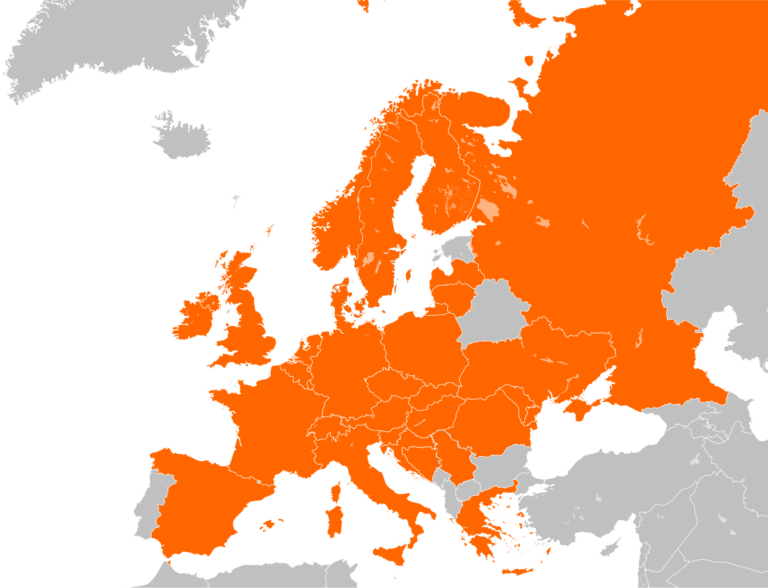
Stolpersteine provide a permanent place where war victims of Nazism are commemorated. These include political prisoners, Jehovah's Witnesses, Roma and Sinti, Jews, homosexuals and disabled people who were eliminated with the Action T4 euthanasia plan. German art project The stones, embedded in the footpath, are placed in front of the?
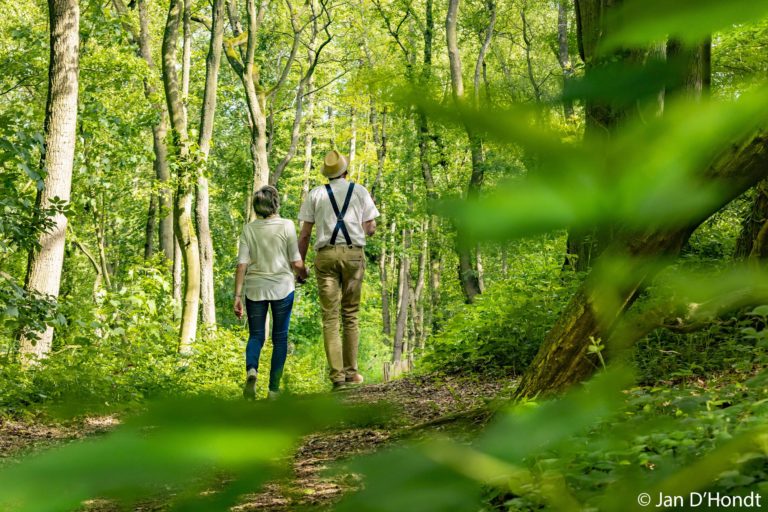
Stories for underway "Stories for the road" is a series of walking booklets with themed walks that are not signposted, but where a handy brochure helps you on your journey. This walk takes you through a bewitched Beselare and follows a route that passes several POIs. A combination of folklore,?
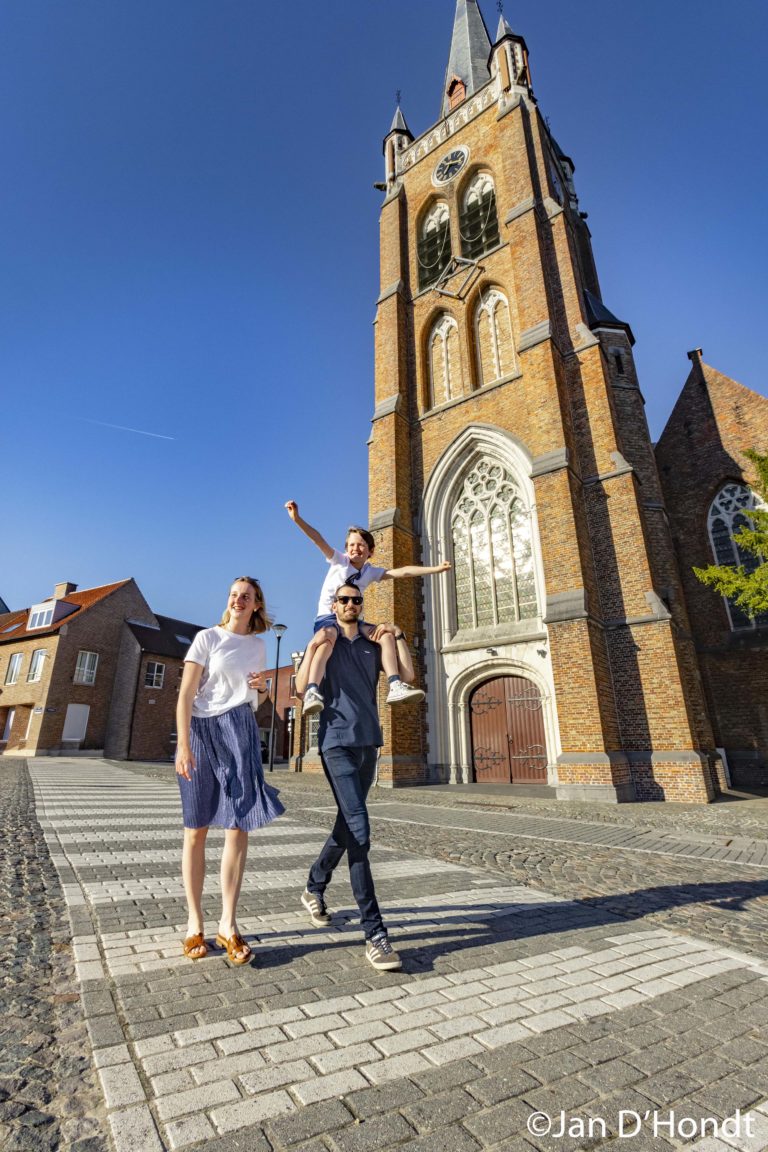
This church was completely rebuilt in neo-Gothic style after World War I (1922-1925). At the back of the church you will find the tombstone of Knight Adriaan Van der Woestine (1527). This family played an important role in Beselaar's history. Van der Woestine family Beselare also once had a castle;?
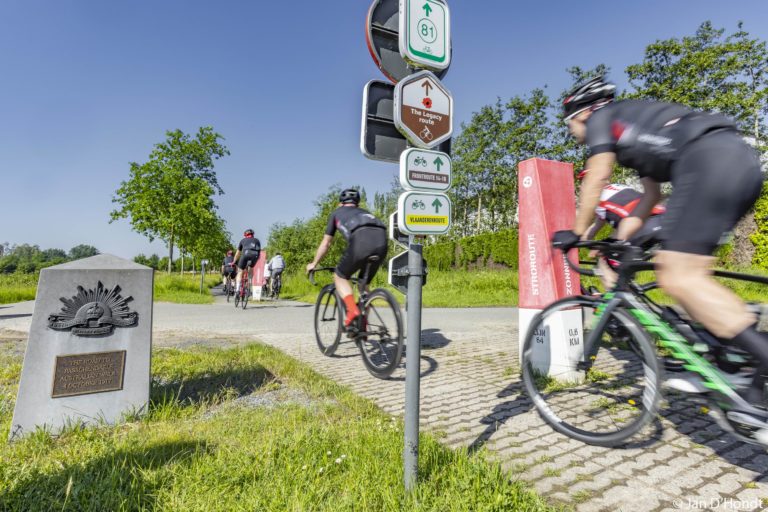
The cycle route introduces you to the monumental heritage of the Battle of Passchendaele. The route starts at the tourist office in Zonnebeke. It crosses the rolling countryside and takes you past several WWI and non-WWWI sites: Tyne Cot Cemetery, Crest Farm, the witch village of Beselare ... Start pedalling?
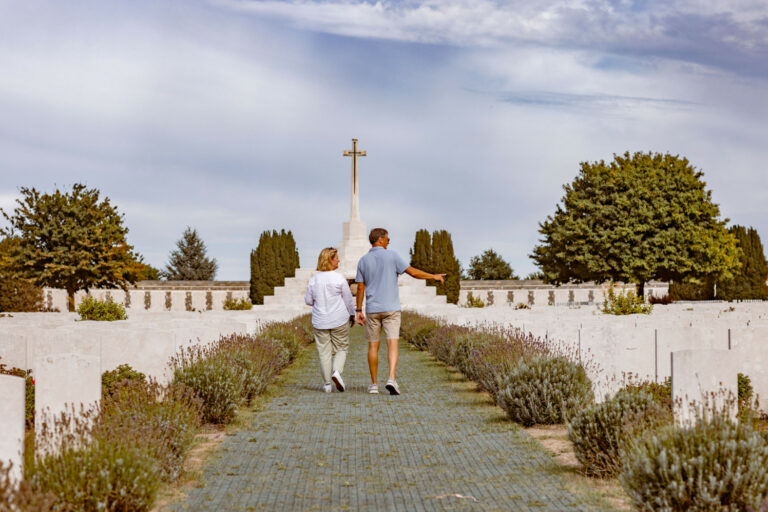
The First World War set the Westhoek ablaze, but reconstruction proceeded at a rapid speed. Yet not all the scars in the landscape disappeared. The renewed Peace cycling trail lets you explore the former front of World War I on the Ypres Salient. The 45 km route guides you past?
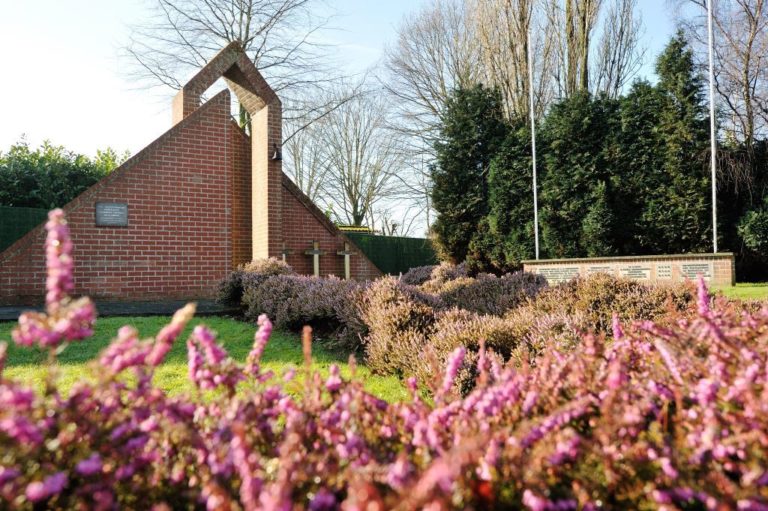
Just east of Zonnebeke lies Broodseinde. The hamlet develops around the intersection of Roeselare and Beselarestraat. In late 1914, during the First Battle of Ypres, the Germans capture the heights from the British. Moments later, the French retake the hamlet, after which the front line stabilises. Living conditions in the?
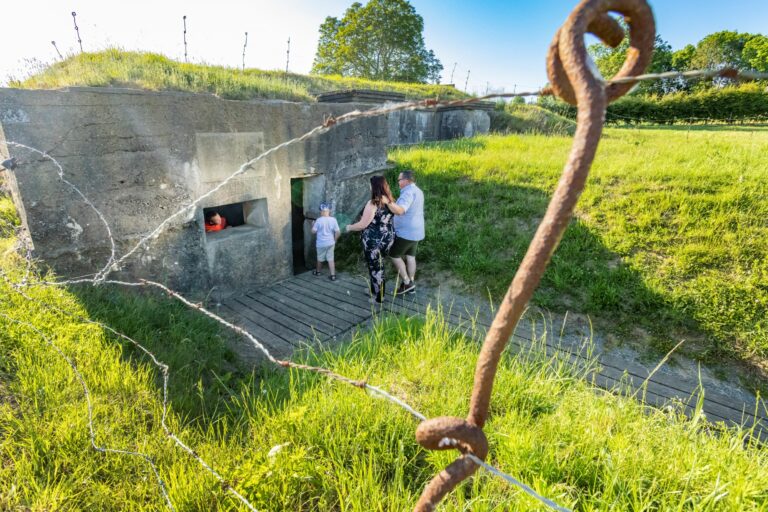
The region southeast of the infamous Ypres Salient, the Ypres Salient of World War I, remained in German hands from the First Battle of Ypres in 1914. After the Second Battle of Ypres, in 1915, the Germans proceeded to build fortified lines parallel behind the front in the Westhoek and?
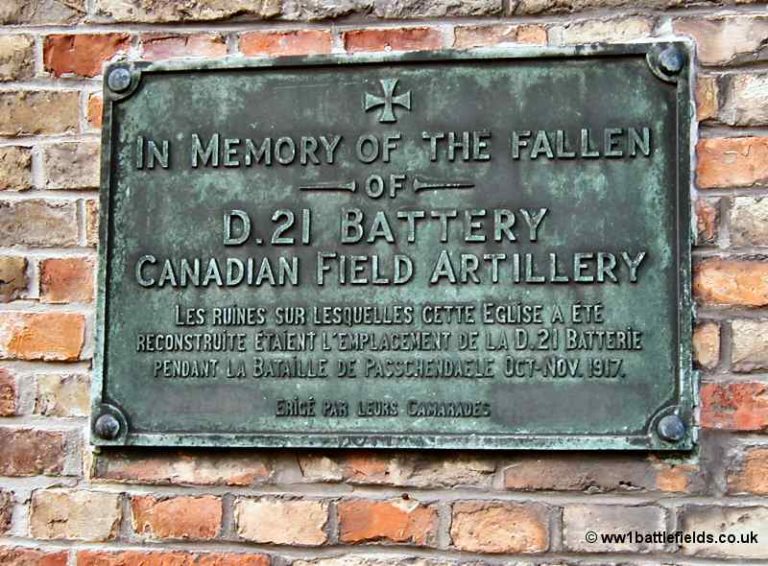
The church of Zonnebeke is just a 5-minute walk from the Passchendaele Museum. On the right wall of the Church of Our Lady is a plaque dedicated to the fallen of D. 21 Battery of the Canadian Field Artillery. During the Battle of Passchendaele, the battery's guns stood at the?
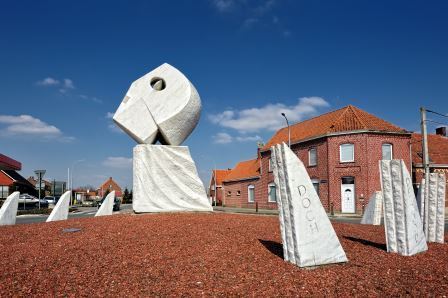
The sculpture aims to capture a moment between Life and Death, between Downfall and Future. The 'head' is tilted backwards and (still) rests only on one line and one point. On one side in particular it is dying, on the other it is still looking upwards in ultimate hope. It?
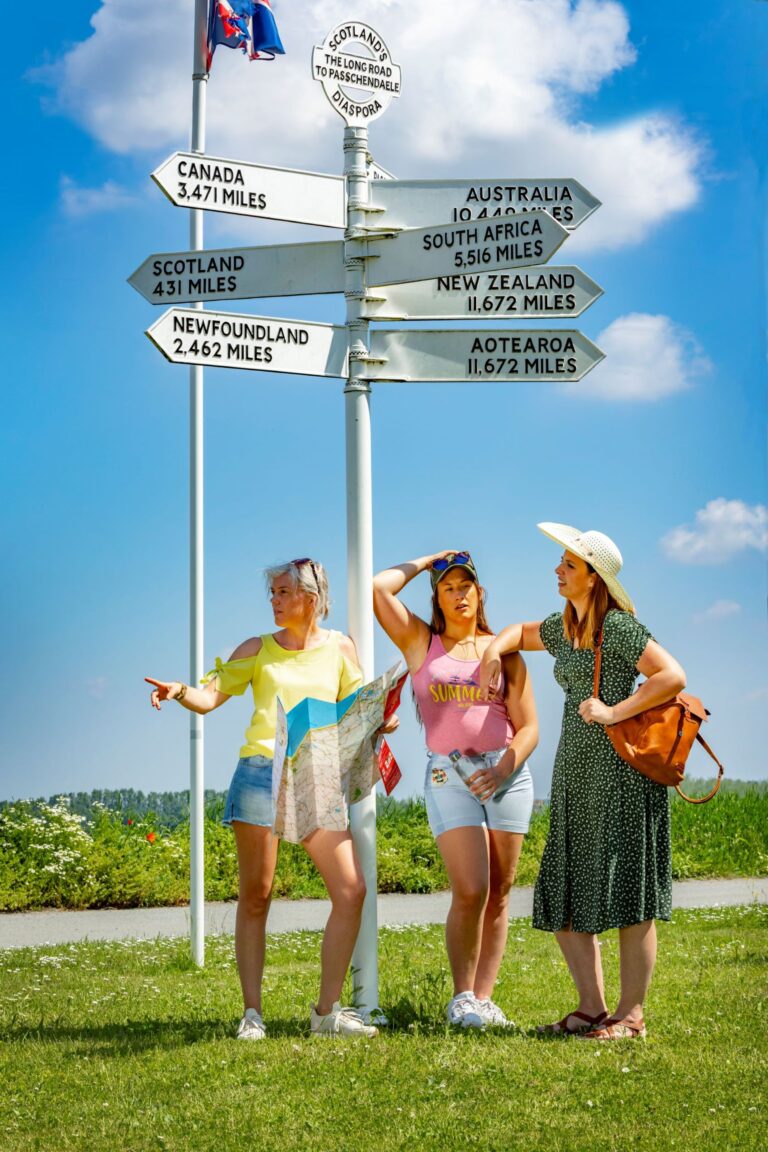
Imagine an enchanting path winding through lush forests, past babbling brooks and past ancient ruins. This is no ordinary hike, but an adventurous journey infused with history, culture and natural splendor - this is a themed hiking loop. Along the way you will pass interesting sights, such as historical monuments,?
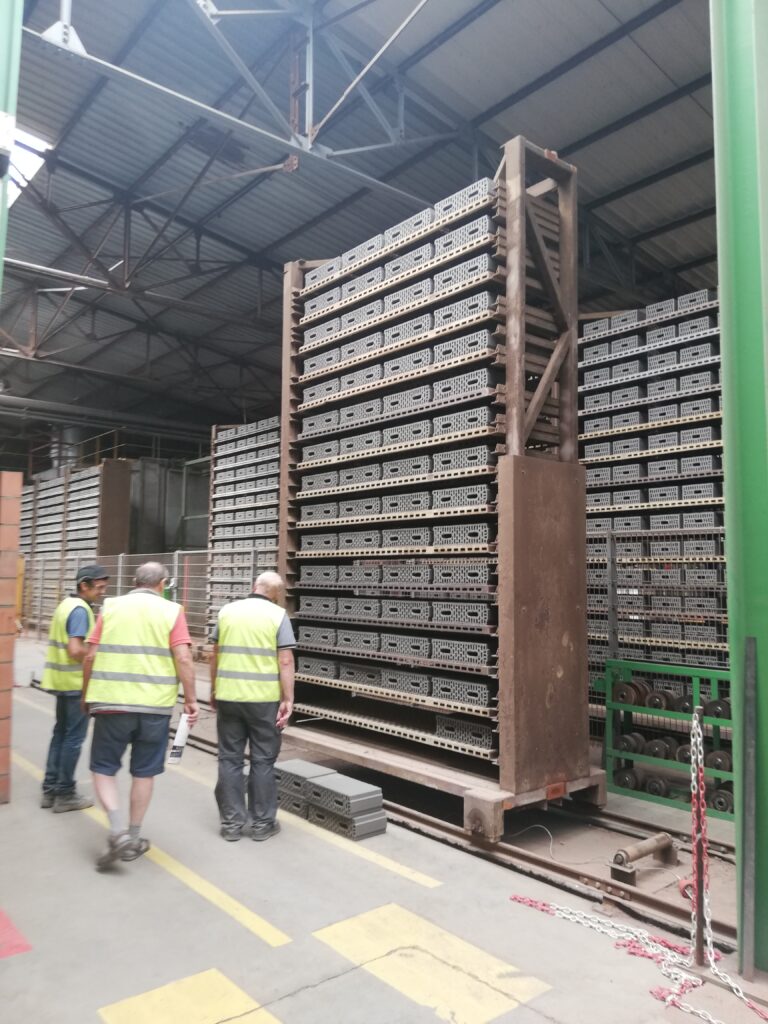
'The Belgian and his brick' is a commonly well-known saying, but do you know how a brick is made? A guided visit to the Wienerberger brickworks in Zonnebeke will tell you all about it. You will walk through the company's various production departments and the guide will happily tell you?
The main theme of this signposted cycle route is the First World War. Starting from Ypres' Grote Markt, the route first leads to the Provincial Domain de Palingbeek, Hill 60 and Hill 62. It then passes through our municipality including a stop at Tyne Cot Cemetery. Further on it goes?
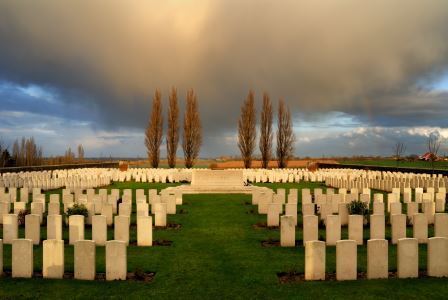
The CWGC Passchendaele New British Cemetery was established after World War I as a collective cemetery of scattered graves on the battlefields around Passchendaele and Langemark. Almost all the fallen fell in the autumn of 1917. Architects Architects Charles Holden and Wilfrid Clement Von Berg were responsible for designing the?
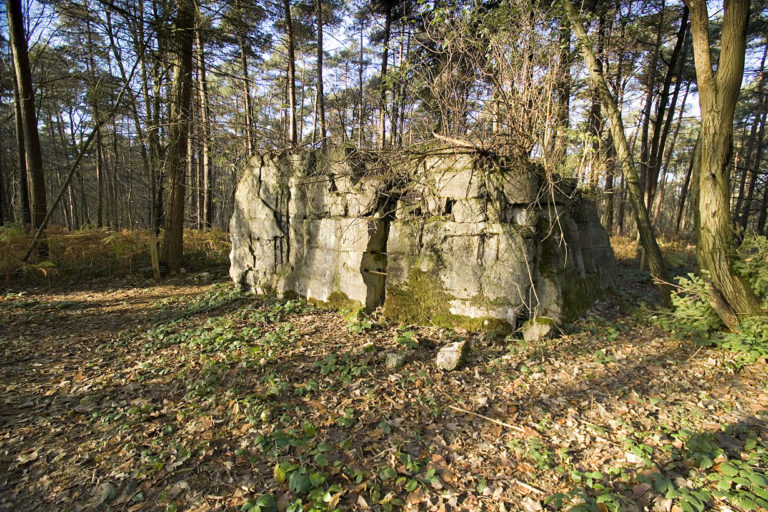
In the middle of the Polygon Forest lies 'Scott Post', a remarkable bunker ruin. It was cast into concrete in 1916 or 1917 by German troops in a wooden formwork and with iron armour. On 26 September 1917, the Third Battle of Ypres, the 56th Australian battalion took Scott Post.?

The southern walking loop runs towards the Polygoon Wood and the former battlefield near Beselare. Polygon wood is a special place in the whole war story. In 1914, French and Germans manned positions there on the southern edge of the forest. After German capture, fierce fighting took place during the?
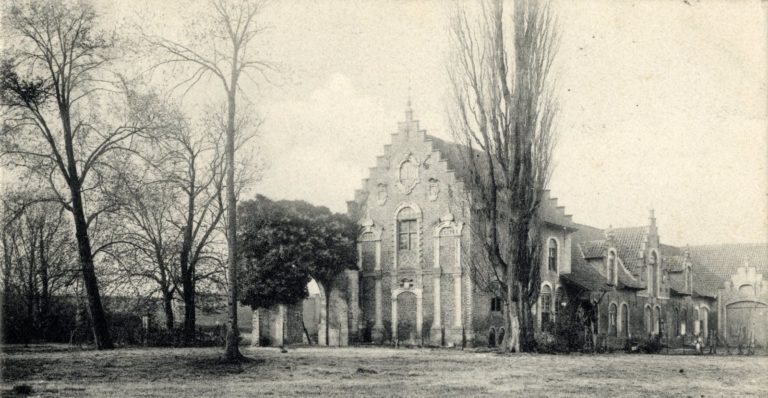
Augustine abbey in Zonnebeke Augustine Abbey was a large abbey of the Regular Canons of the Order of St Augustine. Through a charter from Bishop Drogo of Terwaan and at the request of Fulpoldus, lord of Rollegem, a chapter of three canons was founded attached to the local Church of?
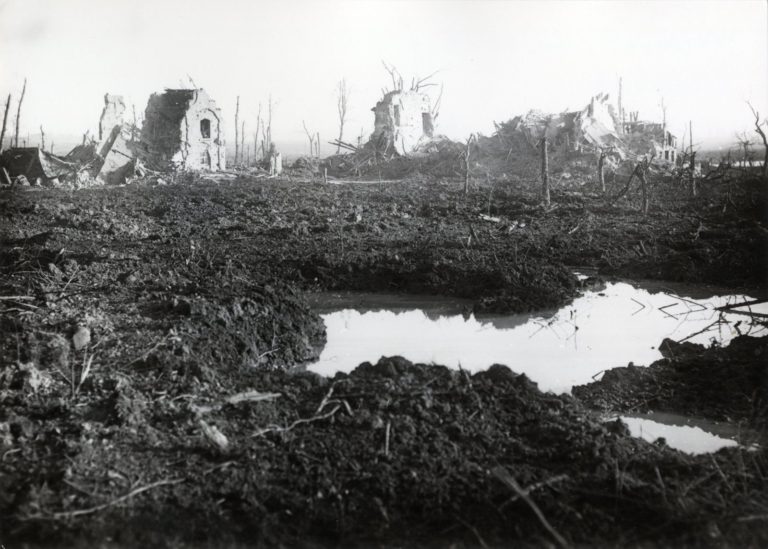
The castle was occupied by the noble Keingiaert family from 1737 to 1965. Before the war, the family owned a large part of Geluveld. During the First World War, the Keingiaert family fled the violence of war. Attacks on the castle Geluveld was defended by the British 1st Division. On?
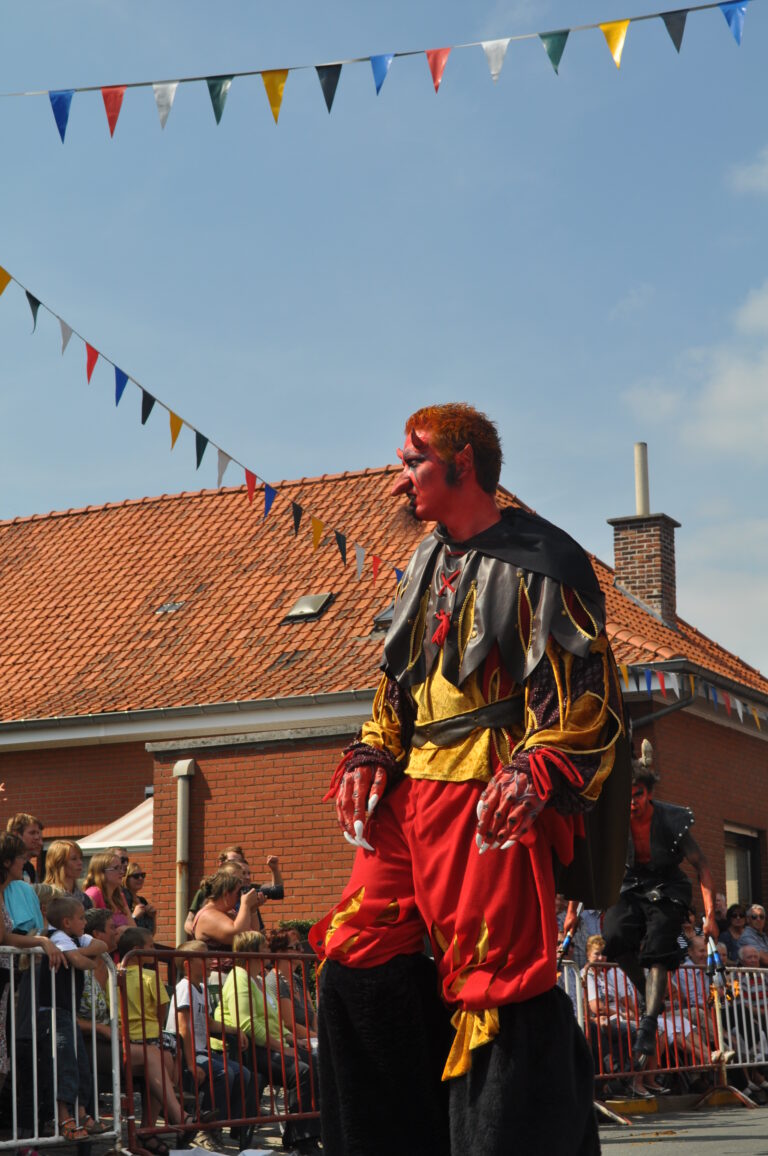
Beselare borough has been known as a sorceress parish for centuries. Of course, every village had a few punishing stories about witchcraft, witches, flying goats, ..., but in Beselare, these stories were penned by a few folk writers and folklorists. It is especially Edward Vermeulen (Warden Oom) who made an?
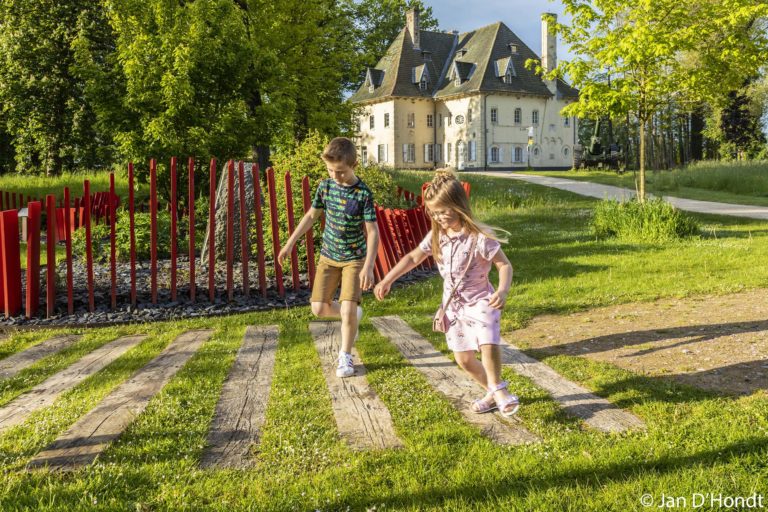
The historic castle grounds of Zonnebeke are the ideal starting point for exploring the region. Various walking and cycling routes start from the park. Two walks have also been mapped out within the castle domain itself. The Park Walk takes you past the most beautiful places in the domain, including?
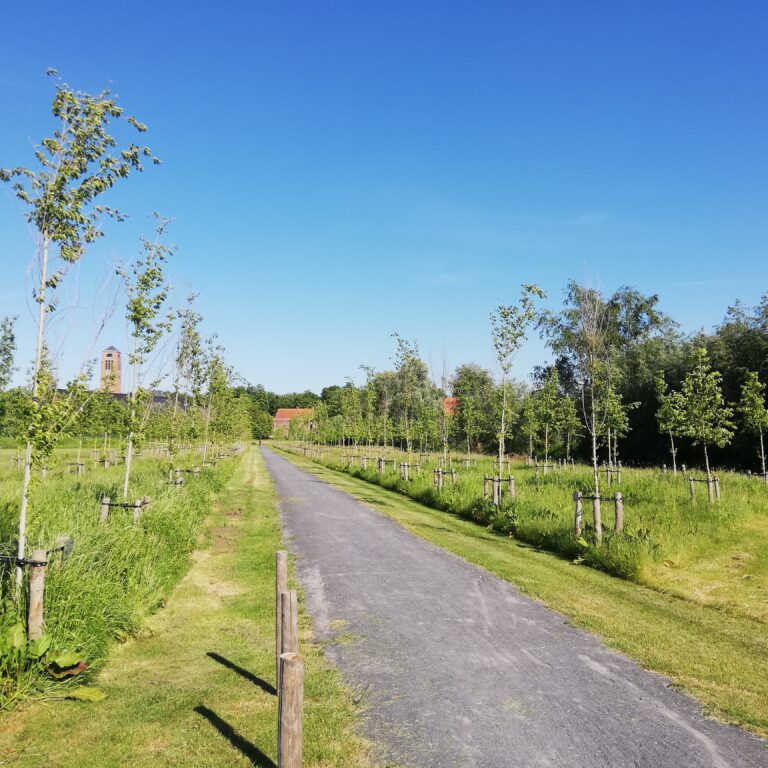
WW1 walking route The municipality of Zonnebeke realised a footpath and memorial forest for 'Those who did not return'. The footpath in the Zonnebeek valley is the final piece of 'The Legacy of Passchendaele' project. Memorial trees World War I took a high human toll. Zonnebeke counts 217 dead who?
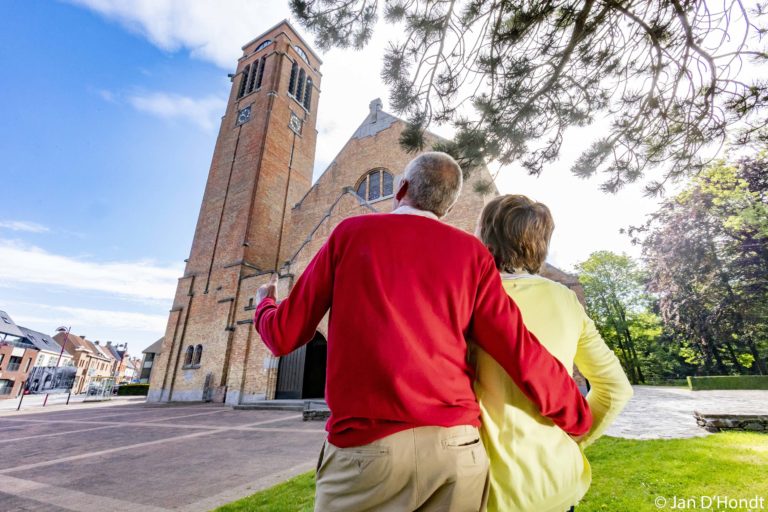
This church was partly built after WWI on the foundations of the former abbey church of the Augustinian abbey that was dissolved in the 18th century. The Church of Our Lady can be seen as Belgium's first modernist church, designed by Bruges architect Huib Hoste. It is built of brick?
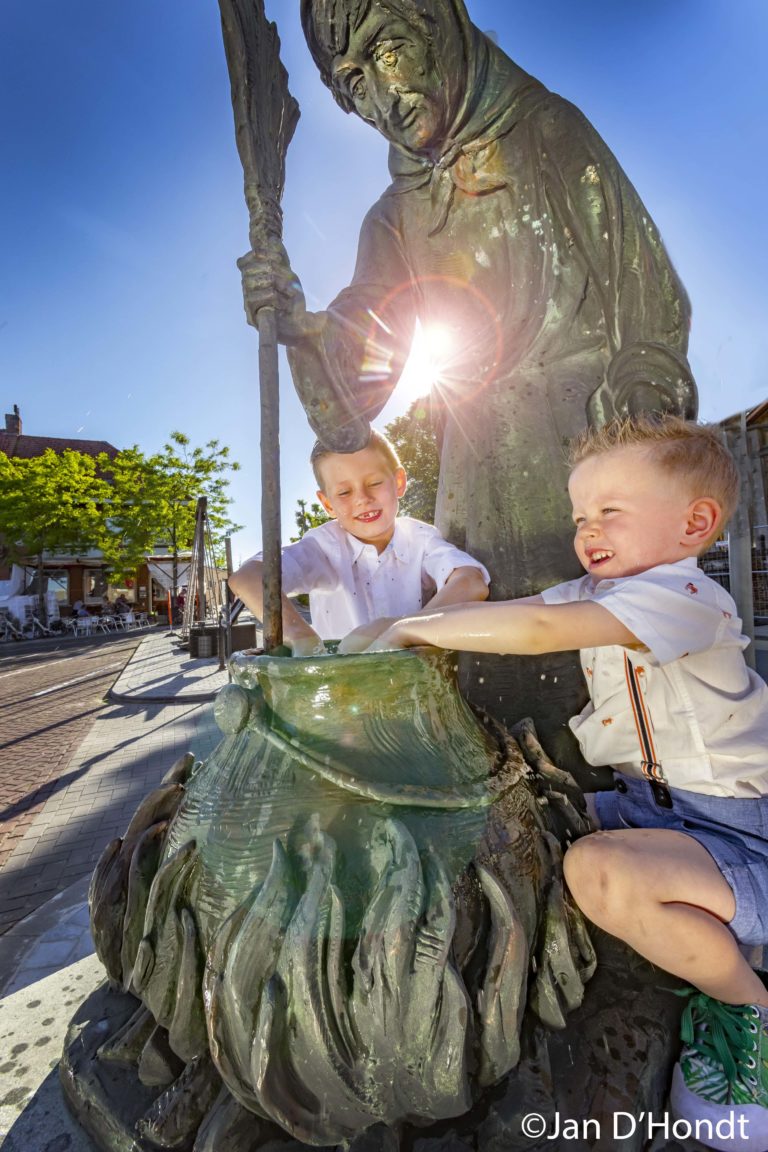
For centuries, Beselare has been known as a village of witches where the name and fame of the witches far transcend the village boundaries. During the 'Heksen wandellus', you will pass the homes of some important witches such as 'Calle Bletters', 'Sefa Bubbels' and 'Tanneken Vanhulle'. The Beselare witches could?
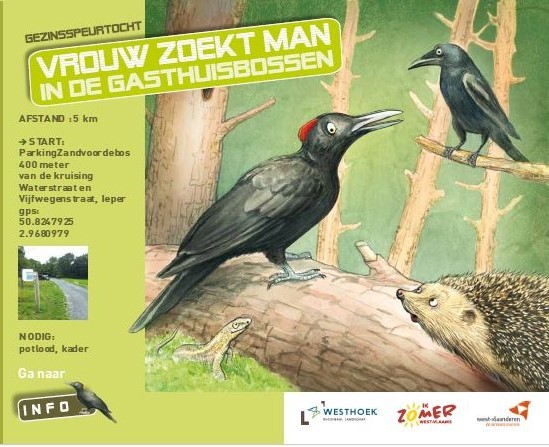
Kate, the black woodpecker, has lost all hope. She really wants to find the love of her life and have her own nest of eggs. But in the wider area of the Gasthuisbossen there is no male woodpecker to be found... If the man doesn't find her, she will search.?
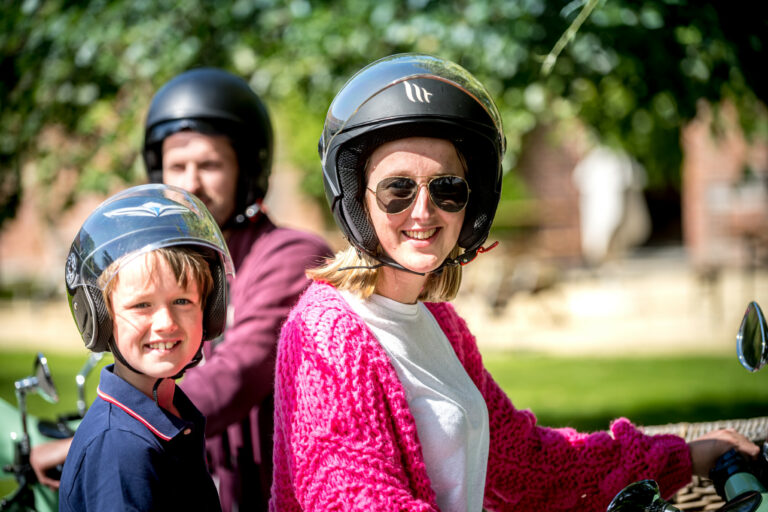
Want something different than a bike ride? Go out with a scooter, Vespa or Tromox Mino and zoom along the roads in and around Zonnebeke. Scooters are known as very accessible modes of transportation and are great for half- and full-day excursions. At a speed of 45 km/h you have?
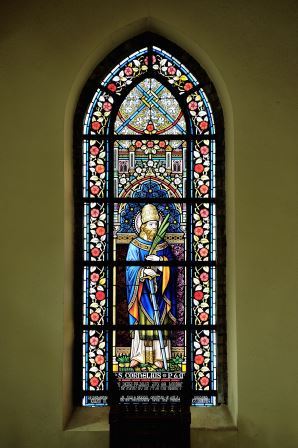
Destroyed by World War I, this church was rebuilt in the Neo-Gothic style between 1923 and 1925. Here, St. Cornelius is worshipped against childhood and livestock diseases. There is a wooden statue of this saint in the church. In the front garden of the presbytery there is a miniature church?
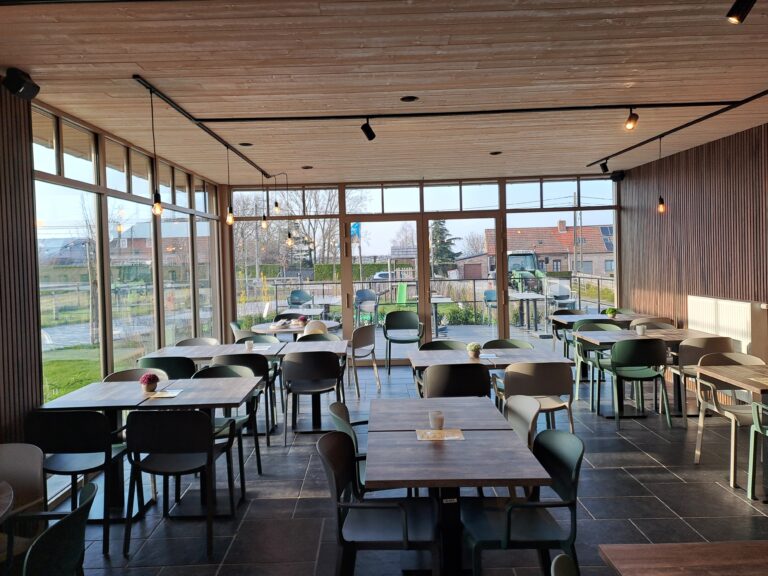
Relax with your family or friends? Put a smile on the face of your children? It is possible with Alpaca Adventure. Discover our Alpaca farm in Zonnebeke and experience an unforgettable adventure. Discover a unique hiking experience with the alpacas! For the kids there are plenty of activities like all?
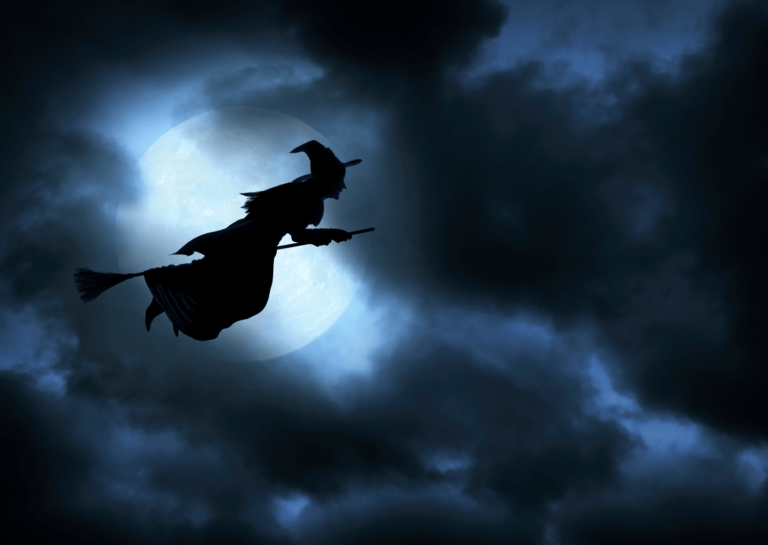
The 'Folklore walking loop' in Beselare is a thematic walk that highlights a number of historical traditions, the cultural peculiarities and inhabitants of the municipality over the centuries. The reclamation and development of the wasteland by the 'Lords of Beselare', the economic activity, the revival after World War I and?
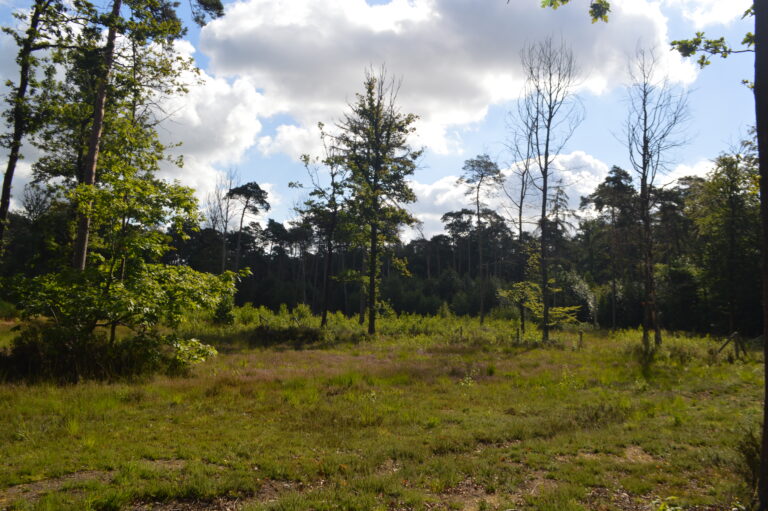
The thematic 'Nonnebossen walking loop' focuses on the history of the once vast forests between Zonnebeke and Ypres. At the beginning of the 12th century, an abbey was founded and developed successfully thanks to a lot of donations. When iconoclasts acted violently on three occasions, the abbey burned down and?
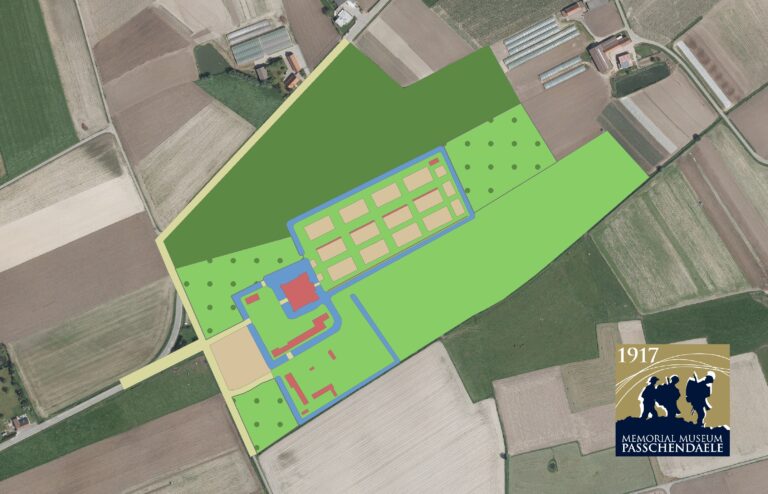
In 1418, Roger Van der Woestine bought the seigniory of Beselare. In 1428, Philip the Good granted permission to knight Olivier Van der Woestine to establish the (still existing) archers' guild of St Sebastian. The Vander Woestyne family pioneered the reclamation of the rough forest area of Beselare and the?
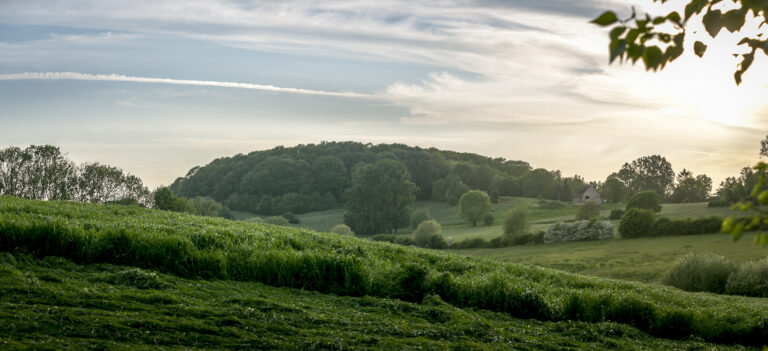
The landscape of the Westhoek is the result of millions of years of natural formation. Characteristic are the West Flemish Hills and the Mid-West Flemish Hillridge, an alternation of subtle heights and lows. The West Flemish Hills, located in the south of Ypres, originated as large sandbanks in a primordial?
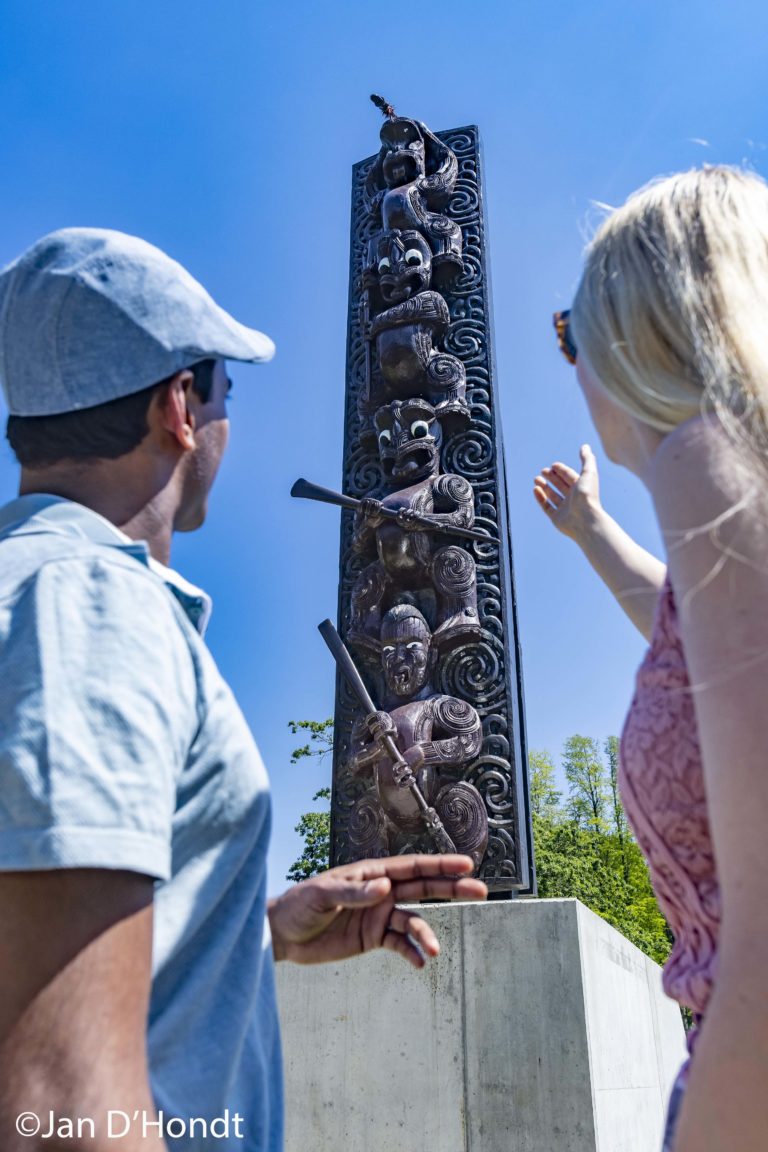
The Pou Maumahara - Pohutokawa is an eight-metre-high and six-tonne Maori monument honouring New Zealand Maori from WWI. Master carvers and students from the New Zealand Maori Arts and Crafts Insitute (NZMACI) in Rotorua, New Zealand crafted this totem over four years from an indigenous wood more than 4,500 years?
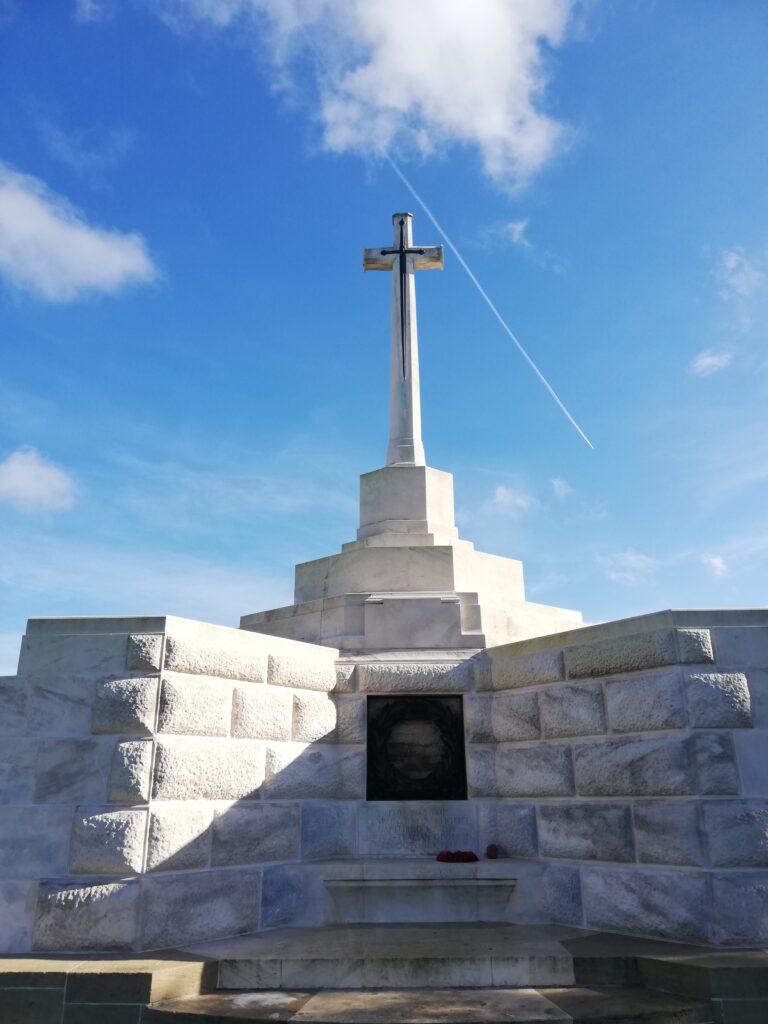
Originally, 'Tyne Cot' was a fortified position in the German defence position Flandern I consisting of several bunkers. The largest concrete structure was set up as a medical dressing station after its capture on 4 October 1917 by the 3rd Australian Division. Cross of Sacrifice The Cross of Sacrifice at?
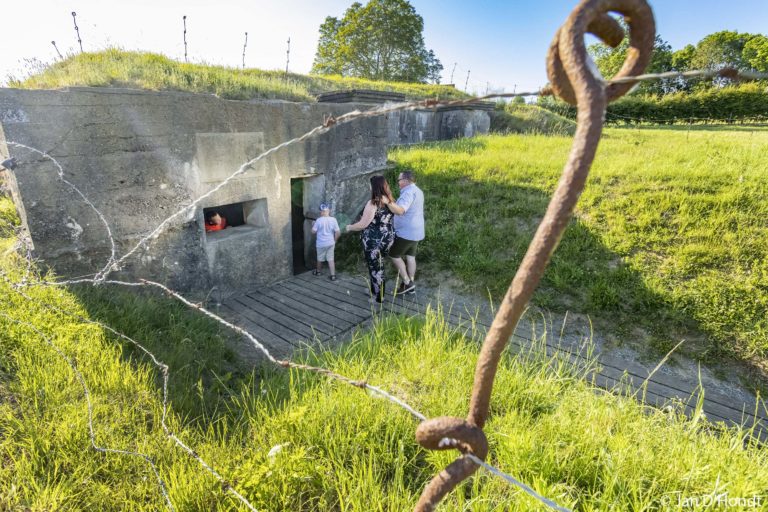
Armierungsbataillone The exceptionally well-preserved command bunker at Zandvoorde is a fine example of German architecture. It is one of the largest remaining bunkers in the Westhoek and is a unique witness. Specifically trained pioneer units, the so-called Armierungsbataillone, built this bunker in 1916 for the staff of a regiment. They?
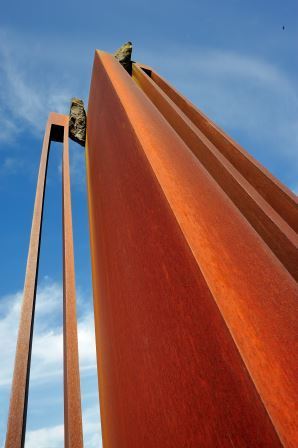
Sculpture Paul Gees Paul Gees says of his sculpture "Referring to the war, this sculpture can be read as a contained conflict, a defiance, but also an awareness of the permanent risk, the precarious as a charged silence. The sculpture likewise sets the vertical above the horizontal, as the pursuit?
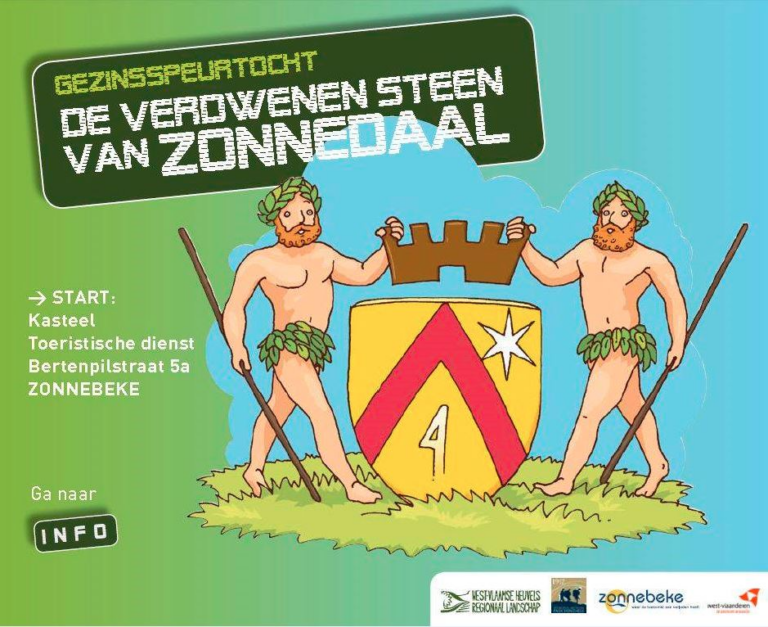
Family quest Since the time of the Romans, Zonnebeke has been considered an ideal place for a village. In the early Middle Ages an abbey was even built there. The park was owned by the abbey and provided food and income. Next to the abbey stood the castle of a?
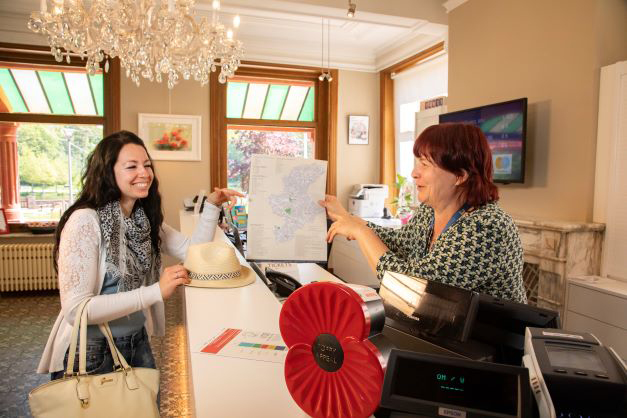
Dienst Toerisme Zonnebeke
Berten Pilstraat 5/A, 8980 Zonnebeke
T. 0032 (0)51 77 04 41 – [email protected]
BTW BE 0207 432 124
(c) Toerisme Zonnebeke
Algemene voorwaarden – Privacy – Cookies – Machtigingen – Sitemap





